














GOOD DAY FELLOW MARKETERS! WELCOME
to the 2nd issue of our magazine for 2023. There has been much activity within our AMC member associations since the last issue.
The Zambia Institute of Marketing (ZIM) held their Annual Conference at the beautiful new Radisson Blue Hotel in Livingstone during April. I was privileged to attend this excellent event. The agenda was packed with intelligent dialogue and fascinating insights, culminating in a glamourous Awards evening – I extend hearty AMC congratulations to all achievers!
The Marketer’s Society of Kenya (MSK) held their Annual General Meeting recently and elected a new 14-person board, including a new Chairperson and Vice Chair – congratulations to Zuhura Odhiambo and Michael Ogillo respectively, we look forward to meeting and working with the new MSK Board.
The Chartered Institute of Marketing Ghana celebrated their first graduation of CIMG Chartered Marketers at a glitzy ceremony in April – well done to all graduates and to the CIMG for a fantastic milestone moment.
And, of course, the AMC and Uganda Marketers Society Team are hard at work preparing for our upcoming conference to be held in Entebbe, Uganda early September. Don’t forget to book your place!
With African consumers feeling the pinch, it’s timely that this magazine issue explores the consumer attitude of ‘Joy’ – see the ‘Joyconomy’ article on page 32, as well as the article on page 30 discussing ‘Trust’. As marketers we must be vigilant when it comes to consumer expectations regarding ethical behaviour and protection of personal data.
Enjoy this issue. I look forward to welcoming you to the AMC Conference in September.
Yours in African marketing, Helen McIntee
BA MBA (Wits) CM (SA)
President: African Marketing Confederation
CHERS SPÉCIALISTES
Bienvenue dans ce deuxième numéro de notre magazine pour 2023. Depuis notre précédent numéro, les associations membres de l’AMC ont été très actives.
L’Institut Zambien du Marketing (ZIM) a tenu en avril sa conférence annuelle au nouvel hôtel Radisson Blue situé à Livingstone. J’ai eu le privilège d’assister à cet excellent évènement. L’ordre du jour était riche en conversations intelligentes et idées fascinantes, avec une soirée très “glamour” de remise des prix, moment culminant de la soirée – je félicite chaleureusement tous les lauréats de l’AMC !
La Société des Spécialistes du Marketing au Kenya (MSK) a récemment tenu son assemblée générale annuelle et a élu un nouveau bureau de 14 personnes, dont un nouveau président et un nouveau vice-président – félicitations à Zuhura Odhiambo et Michael Ogillo. Nous avons hâte de rencontrer le nouveau bureau de la MSK et de collaborer ensemble.
L’Institut Agréé du Marketing Ghana a célébré, lors d’une brillante cérémonie en avril, sa première remise des diplômes de Spécialistes agréés en Marketing CIMG – bravo à tous les diplômés et au CIMG pour ce fantastique moment marquant.
Bien entendu, l’équipe de l’AMC et de la Société de Marketers de l’Ouganda travaille d’arrache-pied à la préparation de notre prochaine conférence qui se tiendra à Entebbe, en Ouganda, au début du mois de septembre. N’oubliez pas de réserver votre place!
Tandis que les consommateurs africains ressentent la crise économique, il est opportun que ce numéro explore l’attitude des consommateurs envers la “joie” – voir l’article “Joy-conomy”, page 32, ainsi que l’article page 30 qui traite de la “confiance”. En tant que spécialistes du marketing, nous devons être vigilants face aux attentes des consommateurs en matière de comportement éthique et de protection des données personnelles.
Je vous souhaite une bonne lecture et me réjouis d’avance de vous accueillir en septembre à la conférence de l’AMC.
Helen McIntee BA MBA (Wits) CM (SA) Présidente de la Confédération africaine du Marketing
PUBLISHER
African Marketing Confederation https://africanmarketingconfederation.org info@africanmarketingconfederation.org
PUBLISHING COMMITTEE
Kwabena Agyekum (Chair)
Gillian Rusike
Helen McIntee
Nigel Tattersall
Mike Simpson
A.M.C. PRESIDENT
Helen McIntee
A.M.C. SECRETARY-GENERAL
Gillian Rusike
EDITORIAL
Simpson Media
Editor: Mike Simpson mike@media-simpson.com
ADVERTISING SALES & COORDINATION
Avenue Advertising
Managing Director: Barbara Spence
Landline: +27 11 463 7940
Mobile: +27 82 881 3454 barbara@avenue.co.za
DESIGN & LAYOUT
Tamlin Lockhart Design tamlin@tamlinlockhart.co.za
PRODUCTION
Reproduction: Tamlin Lockhart Design Digital magazine: Smart Procurement World Print magazine: Business Print
IN ASSOCIATION WITH
Chartered Institute of Marketing, Ghana
Marketers Association of Zimbabwe
Marketing Society of Kenya
Moroccan Association of Marketing and Communication
National Institute of Marketing of Nigeria
Institute of Marketing in Malawi
Institute of Marketing & Management, Mauritius
Institute of Marketing Management, South Africa
Uganda Marketers Society
Zambia Institute of Marketing
second issue of Strategic Marketing for Africa for 2023! Once again, I am pleased to say that the magazine is packed with high-quality thought-leadership content which I trust will help you grow and prosper on your marketing journey.
In line with marketers everywhere, African marketing professionals are finding that the rapid advancement of digital technology – more of a ‘revolution’ than an ‘evolution’ – is changing the way things are done. For example, a service such as mobile money, which has already made significant inroads on the continent, is taking another big leap forward.
For this issue, we thought we’d focus on ‘Retail’ as a key theme. So, you’ll see four articles dedicated to various elements of the retail experience –most, but not all, with an African focus. They cover E-Commerce, including how B2B e-commerce platforms are changing the game for micro-retailers (see pg 10); Mobile Money and the way it is creating new sales opportunities and providing consumer insights (pg 14); Retail Trends in Africa, as discussed by an expert panel put together by Lagos Business School (pg 18); how Retail Technology may evolve in African supermarkets (pg 22) and some fascinating international Retail Research (pg 23).
I believe progressive marketers will also enjoy our article (see pg 24) on how Game-Based Marketing is coming to the fore, on the back of a significant rise in interest in gaming. Once again, fast-changing digital technology is the enabler.
And, with the world in a fair bit of turmoil at the moment, it was fascinating to find out how consumers
everywhere, including in our own backyard, are hurrying to embrace ‘Joy’ rather than negativity (see pg 32). As international visitors often remind us, Africans are among the most optimistic and joyful people anywhere, so no doubt it’s something our marketing readers will relate to – and find useful when developing strategies.
In closing, a reminder that this is your magazine as an African Marketing Confederation member. We are always keen to showcase what our member countries are doing to advance the profession in their respective nations. We’d also love to hear from individuals and organisations keen to contribute thought-leadership articles on relevant topics.
Remember that this publication is also not your only source of marketing news and information. Our AMC website is updated daily with interesting marketing snippets and content from around the world. You can find us here: https:// africanmarketingconfederation.org/ news-articles/
Enjoy your latest read, courtesy of the African Marketing Confederation.
Mike Simpson EditorWe are planning to produce our first Case Study Annual, comprising some of the best African marketing case studies of the past few years. We’d like to cast our net as widely as possible, so if you have an interesting success story that is backed up by solid facts and figures, please let us know.
Theme:

The African Marketers Conference is a premier gathering of industry leaders, marketing experts, and professionals from across Africa and beyond. This conference aims to showcase the untapped potential of Africa’s vast market, providing attendees with valuable insights and tools to explore new business opportunities. With a population of over 1.3 billion people and rich in natural resources, Africa is an attractive market for marketers seeking new ventures.
2,500,000
2,000,000
September 6th - 9th, 2023 Imperial Botanical Beach Hotel, Entebbe, Uganda Individual (member)
Covering accommodation, Meals, conferencing and fun activities
2,900,000

Covering accommodation, meals, conferencing and fun activities.
INTERNATIONAL DELEGATES
AMC Members
Exhibition (Limited slots available)
$850
Covering accommodation, meals, conferencing and fun activities
8,500,000 (USD 2,200)
Includes set up of your ultimate brand experience and meals for up to 2 participants
Virtual Attendance $150 ($50 per day)
*For group offers, kindly reach out for details.
2,400,000
Covering meals, conferencing and fun activities
Covering meals, conferencing and fun activities Individual (non-member)
$700
Covering meals, conferencing and fun activities
5,500,000 (USD 1,400)
(Own set-up and meals for up to 2 participants)
To register, go to bit.ly/AMC2023Reg
MONEY
Mobile money is empowering African consumers and creating new marketing opportunities

18 RETAIL TRENDS
Lagos Business School webinar discusses how clever use of data can transform retailing
22 RETAIL TECHNOLOGY
Is the self-service checkout option set to expand in African supermarkets?
43 ECONOMIC GROWTH
Increasingly, multi-nationals need a direct presence in sub-Saharan Africa. Kenya may be best placed

44 A.M.C. MEMBER NEWS
CIMG launches maiden Ghana
Regional Brand Index Report to highlight regional economic and tourism opportunities
46 A.M.C. MEMBER NEWS
Zambia Conference hears that local marketers must upskill to make a vital contribution to national economic growth
48 CUSTOMER SERVICE
Delivering customer service excellence while respecting Nigeria’s cultural norms is extremely challenging
54 A.M.C. EDUCATION
Enhance your career prospects and develop your marketing knowledge with the AMC
55 AFRICAN BRANDS
Annual Brand Africa study shows Africa’s brands are losing ground to foreign counterparts
56 BRAND VALUATION
Pan-African giant MTN is SA’s most valuable brand yet again, with Vodacom in second place
Evolution



Confederation is the groundbreaking pan-African body of marketing professionals spearheading the ongoing development of the highest possible standards of marketing across Africa.
Founded in 2011, the AMC is a collaboration between the various national marketing bodies and associations to exchange expertise and information, as well as to promote the marketing profession as a whole.
By unifying the bodies in the various countries, the AMC is positioned to
The Moroccan Association of Marketing and Communications (AMMC) was created in late 2013 as a dedicated platform to the country’s marketing and communication communities – including managers, directors and officers from large, medium and small companies operating in the private and public sectors. AMMC members contribute to strategic thinking related to topics and themes of common interest and organise networking and experiencesharing events. AMMC’s vision is to become the Moroccan reference for marketing and communication. Its defined mission is to promote the marketing and communication professions, to develop the skills and knowledge of professionals and to participate actively in the economic welfare of Morocco. https://www. facebook.com/AMMC.Maroc/
exchange expertise and information, provide intellectual capital and to ensure that the continent has a platform for like-minded marketing professionals at the highest level. The AMC aims to grow and support Leaders in Marketing in Africa, through this platform.
The AMC founding members are also fully committed to observing each country’s unique and varying cultures, languages, standards of education and levels of development which require homegrown marketing approaches designed and nurtured by Africans themselves.
The Chartered Institute of Marketing, Ghana (CIMG) was founded in July 1981 with the vision to be the voice of marketing practice in Ghana under the Professional Bodies Registration Act 1973 (NRCD143). The Institute aims at seeing organizations (both private and public) embrace the marketing concept, and be marketing oriented in their operations. In 2020, the CIMG received a Presidential Charter by the passage of the CIMG Act 2020 (Act 1021) with the main objects to set standards for the practice of marketing and to regulate the practice of the marketing profession in the country.
Visit Website
The National Institute of Marketing of Nigeria is the body of professionals engaged in marketing and related fields as marketing practitioners: sales and marketing directors, commercial directors, customers’ managers, media planners, channel developers, creative directors, value builders, brand directors, corporate and institutional governors, transformers, communication experts, general managers, and chief executives.
Visit Website
The Institute of Marketing Management
South Africa (IMM) has for decades been the pre-eminent marketing institute in Southern Africa, bringing together likeminded individuals to share thoughts and experiences within the rapidly changing marketing environment. The IMM offers a wide range of value-added products and services for marketing professionals who are Associates in either an individual or corporate capacity. The IMM is a proud founding member of the AMC, providing you with the added benefit of developing a larger network across the African continent.
Visit Website
The Uganda Marketers Society (UMS) is the leading community and voice of marketing professionals in Uganda. The society brings together diverse professionals across different backgrounds, experiences and levels of seniority to network, learn and grow together. UMS is affiliated with the Chartered Institute of Marketing CIM-UK, the world’s leading professional marketing body. It is led by a diverse Board and Secretariat that
serve to ensure the society meets its goals. UMS started in 2015 with a vision to be the leading body of marketing practitioners and professionals inspired towards the development, promotion of professional ethics and standards, and application of world-class marketing leadership in Uganda. Its mission is to remain the most relevant influence informing Marketing in Uganda as a virtual community for professional marketers.
Visit Website
The Marketing Society of Kenya started as the Advertising Society of Kenya in 1962. It became the Marketing Society of Kenya in 1968. The first chairperson was Nigel Crouch, the then MD of Cadbury Schweppes. The Society’s main objectives are to develop, acknowledge and practice the profession of marketing, to provide services to members, and to offer a platform for self-regulation for practicing marketers.
Visit Website
The Marketers Association of Zimbabwe was launched in 2007 with a vision to be a leading body of marketing professionals promoting professionalism of the highest standards and establishing channels of career development for the benefit of organisations and the economy at large.
Visit Website
The Zambia Institute of Marketing is a membership organisation regulating the practice of marketing in Zambia as provided for in the Zambia Institute of Marketing Act No. 14 of 2003.The Institute is affiliated to the Ministry of Commerce, Trade and Industry. The broad operating moralities of the Institute include: apolitical stance; impartiality and common good; capacity building; networking; and effective communication.
Visit Website
Established in 1991, the Institute of Marketing & Management is the leading professional marketing education and training institution of Mauritius.
Visit Website
Institute of Marketing in Malawi (IMM) was formed in 2020 after transitioning from what was CIM Malawi Members Group which was formed in 2010. IMM is committed to ensuring that interests and needs of its members and stakeholders are understood and catered for throughout the organisation and the wider industry. Currently, IMM is the largest community of professional marketers in Malawi involved in several marketing activities such as networking of marketers in Malawi, organizing marketing events and training courses, setting best marketing practice standards in Malawi, promoting professional development of Marketers, study and education guidance to marketing students among others. IMM has become the face of Marketing in Malawi with the organization now referred to as the benchmark of marketing standards in the country.
Conference will showcase the potential of Africa’s vast market and provide insights and tools to explore new business opportunities.
ANTICIPATION IS mounting in the pan-African marketing community as it gears up for the 2nd annual African Marketing Confederation Conference taking place in Entebbe, Uganda from 6-9 September.
This year’s event breaks new ground in that it is being jointly hosted by the Uganda Marketers Society, a member of the African Marketing Confederation (AMC), and the ICT Association of Uganda, which is a member of the newly formed Technology Information Confederation Africa (TICONA).
This collaboration between the continent’s marketing and IT communities is a recognition of the increasing convergence of the two industries in the digital age, and their need for shared technologies and innovative solutions.
The theme of this year’s marketing conference is ‘Africa’s $3.4 trillion Economy: Opportunities for Marketers’. With a population of over 1.3-billion people and rich in natural resources, Africa is an attractive and still largely untapped market for marketers seeking new ventures.
Speaking during the official launch event held in Kampala recently,
Uganda Marketers Society President, David Balikuddembe, said the conference aimed to showcase the potential of Africa’s vast market, providing attendees with valuable insights and tools to explore new business opportunities.
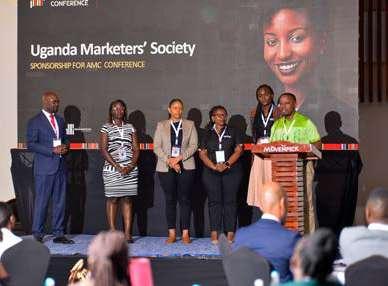
He added that compelling keynote speeches, interactive sessions and panel discussions would equip attendees with the knowledge and skills to tap into this unique and rapidly developing market. The conference will also provide networking opportunities for marketing professionals and those in allied industries, as well as the chance to relax and explore some of the local tourist attractions.
Among the topics to be discussed at the conference will be the African Continental Free Trade Area (AfCFTA), technology, business intelligence, sustainability, leadership, artificial intelligence, the future of media, augmented reality, and culture marketing. Final topics and speaker lineup will be confirmed in due course.
The venue is the Imperial Botanical Beach Hotel in Entebbe, which is located on beautiful Lake Victoria, about 36 kilometres from the Ugandan capital city of Kampala. The hotel is said to be
the finest convention centre in Uganda and is a global landmark, offering technologically advanced conference facilities overlooking the lake.
Addressing the launch gathering in Kampala via a remote link, AMC President Helen McIntee said the upcoming conference emphasised just how far the African Marketing Confederation has come since starting on a journey in 2011 to be an umbrella body for the continent’s marketing associations. There are now 10 country members of the AMC.
“Our aim is to network, collaborate and upskill the marketing profession, as well as learn from each other in terms of how we’re dealing with the unique challenges that we have in Africa – and the unique solutions,” she told the audience.
“We all know that Africa is filled with millions of people who are intent on finding solutions – with a remarkable passion and a stubbornness to succeed.”
Bookings for the conference are now open. You can visit the following website for booking information and details of packages:
https://


africanmarketingconfederation.org/












Business-to-consumer e-commerce on the continent is facing headwinds. But the fast-emerging B2B digital retail platforms may have a bright future.
 By Mike Simpson
By Mike Simpson
IN LINE WITH international trends, e-commerce in sub-Saharan Africa has developed rapidly – driven by advances in digital technology, improved internet connectivity and an increase in smartphone penetration.
The pace-setters have been the business-to-consumer (B2C) online retail platforms modelling themselves on global players such as Amazon, eBay and Alibaba. In the context of sub-Saharan Africa, think Jumia (originally from Nigeria), Takealot (South Africa), Copia (Kenya), Konga (Nigeria) and others.
Various specialised B2C e-commerce platforms have also emerged –among them Mydawa, a Kenyan e-pharmacy startup, and Faithful to Nature, a South African online store for natural and ethical products.
So too have highly sophisticated e-commerce platforms owned by retail groups with their roots in bricks-andmortar retailing. These range from supermarket groups like Carrefour and Checkers, to hardware chains and consumer electronics businesses.
In terms of consumer shopping habits, the B2C platforms have been game-changers for the middleclass African shopper. Black Friday deals – now an established feature of life in African countries ranging from Mozambique to Senegal – likely wouldn’t have existed without the e-commerce models, for example.

But the B2C e-commerce sector, with its ‘Amazon lookalikes’ and ‘Walmart lookalikes’, is in a state of flux. The early disruptors are themselves being disrupted by new challengers, changing economic circumstances, and greater competition from the bricks-and-mortar retailers.
There is also the reality that the sector’s success is based on satisfying the middle-class consumer with a reasonable level of disposable income. In many sub-Saharan African countries, that segment varies from moderate in size to wafer-thin – and is likely shrinking as the global inflationary trends and economic instability of 2022-23 hit home.
For example, Copia, the Kenyan-based B2C platform, recently suspended its business operations in Uganda – less than two years after entering the market and only months after opening a logistics hub in Kampala.
The global economic downturn and constrained capital markets have been cited as reasons for Copia pausing its African expansion plans, which until recently also included moves into Rwanda and Tanzania.
“Given [that] the economic downturn and constrained capital markets are expected to continue for some time, Copia plans to double down on efforts to drive our founding Kenya business
to sustainable, scaled profitability,” the company said in a statement.
Jumia, founded in 2012 in Lagos, is a key player in the continent’s B2C e-commerce space and is sometimes known as the ‘Amazon of Africa’ due to its involvement in 10 countries on the continent.
But the going has not been easy and its once-aggressive expansion strategy has been pared back as it continues to make losses.
There has been a management shakeup and a cost-cutting drive which has included retrenchments and exiting unprofitable segments like logistics-as-aservice and grocery delivery. It has also struggled with supply chain problems and foreign currency fluctuations.
However, the company did announce in May that its first quarter 2023 results showed reductions in its losses, and that it was on the mend, plugging revenue leakages and aiming to be profitable by the end of the current financial year.
In South Africa, major B2C
e-commerce platforms such as Takealot will be eyeing Amazon’s imminent arrival in the country (date still TBC at the time of writing) with some trepidation. While Takealot is the well-established market leader in SA, Amazon has a global name and buying power, as well as expertise and technology systems honed by operating 400 warehouses, 60 000 trucks and 110 planes around the world.
The local players may also find themselves falling short when it comes to customer experience (CX).
“Amazon is a slick and well-oiled machine, and is bringing to South Africa unmatched global e-commerce experience, customer service expertise and tech capability,” says tech entrepreneur and CEO of Innovo Networks, Damian Michael.
“In our research, we’ve found that local online retailers are struggling with artificial intelligence, contact centre efficiency, reverse logistics (when customers return unwanted items), and a lack of suitable skills and resources.”
Michael explains that, at a functional level, local e-commerce retailers are not delivering consistent customer excellence because they are multichannel in their focus, with CX teams on one channel (e.g. WhatApp) struggling to integrate with a team servicing the same customer on another channel. Rather, they need an omni-channel strategy that integrates the different methods of interaction available to customers.
So, expect a shakeout – or at least some notable disruption – in the African B2C e-commerce environment. Apart from South Africa with its Amazon arrival, Kenya could be one of the countries destined for turbulence.
Trendtype, an emerging market consultancy based in London, believes Kenya is the most “competitive disruptive grocery market in Africa” and there are too many platforms operating in Kenya “for all of them to survive through 2023 and 2024”.
But for most African consumers – who are cash-strapped and have traditionally shopped in the informal retail sector at mom-and-pop stores, markets and street vendors – the B2C e-commerce platforms have had little relevance. Their game-changer could be the rapid proliferation of business-to-business (B2B) e-commerce apps and platforms, These businesses, typically tech start-ups and often using investor capital from abroad, are revolutionising the largely inefficient supply chains that have traditionally linked FMCG manufacturers and fresh-food producers with wholesalers and informal retailers.
Depending on your viewpoint, the new B2B platforms are either complementing or competing with the old-style middleman (and his price mark-up, of course) who has been a part of the continent’s last-mile route-to-market scene for so long.
This new wave of B2B business models includes TradeDepot and Omnibiz (both founded in Nigeria),
Wasoko and Twiga (both Kenya) and Jabu (Namibia).
“B2B e-commerce companies seek to digitise the distribution layer of the fast-moving consumer goods business, which makes up the bulk of items bought in street shops. They also provide credit to keep their retail partners’ stock high,” explains TechCabal, the Nigerian-based tech news website.
“Our success is when they [our partners] are able to offer more goods and at better prices,” Tridiv Vasavada, Chief Technology Officer at Wasoko, told the website.
Essentially, the B2B operators use smartphones and simple digital front-end technology, backed by sophisticated back-end tech, to enable micro-retailers to easily place their orders for FMCG products and possibly fresh produce too. This can be done via dedicated apps or WhatsApp.
Street-level retailers use these operators to manage inventory, keep up to date with product availability and market prices, and to obtain credit. The latter moves the process a long way forward from a common ‘old style’ scenario where a middleman delivers a small order to a vendor in the morning, allows time for the vendor to sell the stock, then returns in the evening for his money. The whole process is repeated the following day.
Deepankar Rustagi, CEO of OmniBiz, explains in a column written for the London-based The Economist newspaper, how inventory financing is being addressed by his e-commerce business model.
“Through partnerships with multiple banks, solutions like Omnipay are enabling retailers to seamlessly receive payments from their customers and make transactions with suppliers,” he says. “Similarly, Omnibiz’s ‘buy now, pay later’ enables retailers to scale their businesses faster.”
Last-mile delivery remains a significant challenge for the B2B platforms, though.
Micro-retailers are spread far and wide across Africa’s towns, cities and rural areas, and can be hard to reach due to congestion and poor infrastructure. Working with the same middlemen as before, but within a more sophisticated system, then becomes the answer for the platforms.
“B2B ecommerce, in many cases, directly competes with wholesale distribution networks with a long history of serving informal retailers,” notes TechCabal
“Replacing the wholesale operators who form the backbone of consumer goods distribution across Africa is not a light challenge. It is even conceivable that some of these non-tech wholesalers have exclusive business relationships with manufacturers.”
Clarifies Ignatius Akpabio, TradeDepot’s Director of Growth and Strategy: “If you don’t have these people as your partners, you will struggle from a supply standpoint.”
A successful B2B e-commerce model also relies on fostering good working relationships with the existing microretailers, of course – some of whom may have been serving neighbourhoods for decades.
Says Rustagi: “A large part of Nigeria’s – and Africa’s – potential for e-commerce lies in small shops and kiosks, which are the custodians of customer trust. Virtually integrated e-commerce companies … will empower these informal retailers by addressing issues that are most pressing to them and their consumers alike.”
He concludes that “technologyempowered informal retailers may well be the future of retail in Africa”.
TechCabal believes the jury is still out on how much retail digitisation B2B e-commerce platforms can enable on the continent. What is clear is that the mass-digitisation e-commerce model found in the likes of China is not on the cards, because the local model “relies on and even enables Africa’s dukas, spazas, and provision kiosks to sort out the last leg of commerce”


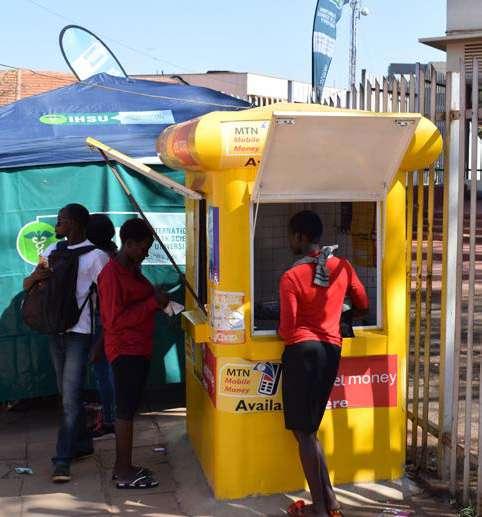
Among other things, mobile money is creating new ways for African marketers to understand consumption patterns and improve the customer experience.
By Christele Chokossa.M-PESA, THE FIRST globally known mobile money product, was launched in 2007 by Safaricom, a subsidiary of the Vodafone group. The service initially aimed at facilitating remittance transactions and targeted underserved lower- and middle-income households in Kenya.
As mobile money spread globally during the pandemic, the concept has become a catalyst for innovation and a pillar in achieving sustainable economic development across emerging markets. In sub-Saharan Africa, the trend translated into over 600-million mobile money registered accounts and transactions valued at over US$600-billion in 2022.
Historically, the socio-economic development of sub-Saharan African countries has been hindered by the relatively low level of financial inclusion. According to the World Bank, 45% of sub-Saharan Africans aged 15 and above were unbanked in 2021.
The relatively low penetration in the banking system often leads to limited infrastructures like ATMs and point-ofsale (POS) machines, with burdensome application processes and expensive service fees making them even more out of reach for many consumers. For instance, in countries like Ethiopia, which had 30 banks and 8,944
branches in June 2022, the service ratio was 1:11,500 people.
Banking services have also struggled to adapt to the region’s socio-economic fabric built around informal economies where cash transactions dominate. Despite an 85% banked population in South Africa, cash still represented over 65% of individuals’ payments in 2022. In parallel, relatively low levels of financial literacy, delayed settlements and fraud concerns are amongst other factors affecting the momentum of banks across the region.
Mobile money is effectively addressing these concerns and opening up new opportunities for marketers and market researchers.
Backed by 2G and 3G networks that reach over 80% of the region’s population, such services offer simplified onboarding processes and access through Unstructured Supplementary Service Data (USSD), a coded mobile communication protocol that relies on text messages rather than internet connectivity.
Allowing for greater safety, affordability and instant transactions, the adoption of mobile money services has been supported by a broad consumer base of
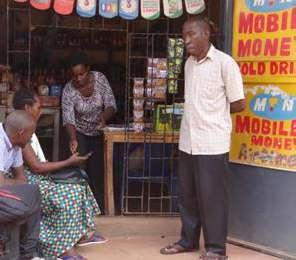
leading telecommunication companies. These operators rely on an army of agents, including traditional and informal traders that provide ATM networks near households.
Since 2018, improvement in mobile money services has been further facilitated by interoperability systems across operators.
As demand rises and operators continue to innovate, mobile money services have evolved from peer-to-peer (P2P) transactions – translating into cash-in and cash-out transactions to allow purchases of goods and services.
The growth in Lipa na M-Pesa illustrates the trend. Launched in 2013 in Kenya, this cashless payment service for consumer goods and services reached over 400,000 merchants by May 2022.
Improved internet penetration and the influx of affordable smartphones have also allowed more of the unbanked population to rely on mobile money transactions online, effectively contributing to a 29% increase in e-commerce value growth in 2022 across sub-Saharan Africa. Emerging accommodation-listing businesses like Bongalo in Rwanda and Cameroon are betting on online mobile money transaction services to gain an edge against global short-term rental companies like Airbnb. Sendwave, which operates in many African countries, is relying on mobile money to effectively compete with global remittance services like Western Union. More than facilitating payments, mobile money is creating new paths to understanding consumption patterns. Therefore, B2B and B2C businesses have leveraged transaction insights to improve customers’ experiences, develop targeted promotional and marketing campaigns, and consolidate brands’ loyalties.
Such services have also been efficient in cushioning socio-economic shocks like
In late 2016, Professor Tavneet Suri, an economist at the renowned Massachusetts Institute of Technology (MIT) in the US, coauthored a paper showing that mobile-money services had notable long-term effects on poverty reduction in Kenya – especially among female-headed households – and had inspired a surprising occupation shift among women.
Published in the peer-reviewed academic journal Science, the study estimated that, since 2008, access to mobile-money services increased daily per capita consumption levels of 194,000 – or 2% – of Kenyan households, lifting them out of extreme poverty (at the time defined as living on less than US$1.25 per day).
There was also an interesting gender effect: Female-headed households saw far greater increases in consumption than male-headed households. Moreover, mobile-money services had helped an estimated 185,000 women move from farming to business occupations.
“Previously, we’ve shown mobile money helps you with financial resilience. But no one has understood, if you improve resilience, what happens over the longer term. This is the first study
civil unrest, monetary policy crises or disruptions affecting other payments. One prominent example is Nigeria, where the central bank announced plans to introduce new 200, 500 and 1,000 naira notes in October 2022.
At the time, the banking sector held less than 20% of cash in circulation. Ahead of the initial 31 January 2023 deadline to swap old notes, the country experienced widespread
that looks at long-term poverty reduction and at gender,” said Suri, who co-authored the paper with longtime collaborator William Jack, an economist at Georgetown University in Washington DC.
The Kenyan study was important, Suri explained, because it showed that mobile-money services aren’t just conveniences but do, in fact, have a positive impact on people’s livelihoods. “[That] can be useful for regulators trying to figure out if they want to allow it in their country, or whether someone wants to start a service in their country as an entrepreneur,” she said.
Another surprising finding, Suri noted, was that increases in agent density caused about 3% of women in both female- and male-headed households to take up business or retail occupations over farming. These occupations generally entailed singleperson businesses based around producing and selling goods, which is made easier by mobile money.
“You used to grow vegetables, but now you take your vegetables to the market and sell them, or you open a little food cart or kiosk,” she said at the time.
Readers of our Digital Edition can find out more about the original research here
As central banks reduce barriers to entry in the financial sector, mobile money is also becoming a catalyst for innovation, giving room for diversified income streams across emerging services like micro-loans and insurtech (technology-based insurance services).
This opening gave ground to Orange Bank Africa to launch nano-credits in Côte d’Ivoire, with the company planning to reach 10-million consumers with such loans across Senegal, Mali and Burkina Faso by 2025.
Along the same lines, MTN joined forces with South Africa’s Sanlam insurance company in 2022 to improve access to Ayo Insurance, an affordable micro-insurance business targeting informal employees and self-employed users across Ghana, Uganda and Zambia through its mobile money services. The strategic partnership aims to reach 30-million users by 2025. But despite the evolution of mobile money over the past decades, the service has yet to reach its full potential in a region inhabited by over one-billion individuals, over half of whom will be under 25 years old by 2050.
Forward-thinking companies across manufacturing, services and payments should consider integrating mobile money into existing strategies. The shift will allow them to adequately cater to the region’s growing populations and diversified needs, build resilience during economic shocks and, more importantly, expand their reach to a broader customer base.
cash shortages due to the limited availability of new notes.
In response to the challenge, more individuals and businesses adopted mobile money services, leading to a spike in monthly mobile wallet transactions volume, increasing by 231% in January 2023 compared to January 2022 and translating into over US$5-billion in monthly transaction values.
Christele Chokossa is a Senior Analyst at Euromonitor International, with a focus on services and payments. She oversees services-related projects across sub-Saharan African markets like Nigeria, Kenya and Cameroon. She also advises clients across a range of industries on evolving consumer behaviour in Africa, as well as socio-economic challenges and opportunities across the region.





Lagos Business School webinar discusses how clever use of data can transform the continent’s dynamic retail sector.
By Cara Bouwer.NOT EVERY TREND impacting the future of retail in Africa hinges on tech-focused solutions and digital development. Tighter budgets, changing buying habits and a youthful demographic are still gamechangers.
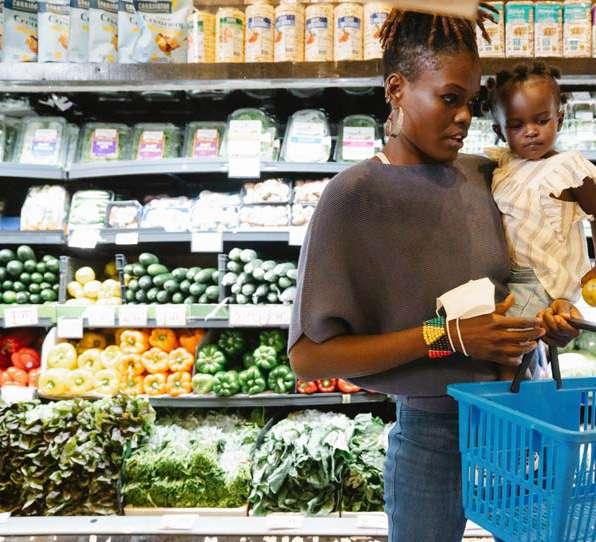
When the Lagos Business School (LBS) Africa Retail Academy held its recent webinar entitled ‘Harnessing the Power of Data to Transform Africa’s Retail Organisations’, the timing could not have been better.
The launch of artificial intelligence (AI) platform ChatGPT was (and still is) on everyone’s lips. Around the world, the retail sector has been abuzz with the potential to streamline operations, optimise business processes, cut overheads, increase efficiencies, analyse data and build customer satisfaction.
Elaborating on the potential impact of AI on African retail, Angela Ambitho, CEO of Infotrak Research and Consulting in Kenya, noted how AI could be used to manage distribution and inventory practices, or to conduct predictive and real-time analysis of customer insights.
Of all the possible uses for AI, a major talking point during the webinar was how to really draw out insight nuggets and use big data effectively. However, in a sector being transformed by digital shopping and the e-commerce evolution, it was refreshing that the human quirks of the consumer experience remained an important talking point.
Africa will surpass 500,000-million e-commerce users by 2025, delegates were told. At a steady 17% compound
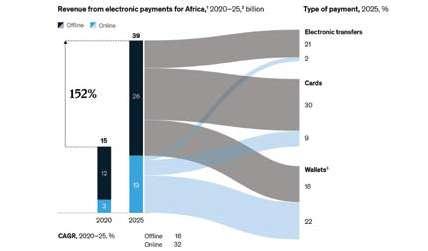
annual growth rate (CAGR), this represents a major driver for the sector. Already, Ambitho noted, Kenyans “hardly use cash. People will ask you to pay with our famous M-Pesa [mobile phone-based money transfer service]”. And it’s not just Kenya that’s being won over by safer, more convenient electronic payment methods.
According to McKinsey & Company’s ‘The Future of Payments in Africa’ research, countries such as Egypt, Ghana, Kenya, Nigeria and South Africa are rapidly “developing the appropriate infrastructure and relevant policy frameworks to deliver a sophisticated electronic-payments system”.
Nigeria is growing at the fastest rate – 35% annually – while South Africa remains the biggest e-payments market. However, countries like Ghana, Kenya, Senegal, Uganda and Cote d’Ivoire are also recording annual growth of 20%.
As these African consumers become more comfortable with electronic payments, they are increasingly gravitating towards online buying.


The impact of the Covid-19 pandemic, which made it possible to buy anything from perishables to fashion products online, coupled with the fact that more than 60% of Africa’s population is under the age of 25, are conspiring to drive consumers towards online retail.
This trend, said Ambitho, will continue as “this youth cohort continues to shift the dial towards digital buying as they mature and become higher spenders”.
Ambitho noted that as Africa continues to record an exponential growth in digital buyers, this will affect cost and competitiveness; making it increasingly more affordable to shop online at a physical store.

As a result, she warned, “Those with the brick and mortar will have to think about how they use their retail stores, so they don’t lose out when especially the younger consumer decides there is no point going to a retail environment because they can do everything online.”
On this point, Nigerian executive business consultant Chidi Okoro added that African consumers are increasingly
looking for the convenience of getting everything they want from a single store.
As convenience continues to dominate consumer expectations, it will become increasingly important for retailers to find the right partners – and not necessarily those from within the retail space. Ifeanyi Louis Nzegwu, Professor of Marketing at LBS, explained that e-commerce was already laying the groundwork for strong tie-ups between retailers and bankers.
Ambitho, meanwhile, pointed out how delivery services were a growing source of partnerships. She singled out South African retailer Checkers, which outsources its Sixty60 deliveries to logistics company RTT Group through their Pingo joint venture. This, she said, allows Checkers to focus on its core business while trusting its partner to deliver to consumers efficiently.
What is interesting in the African context, noted Thobeka Magubane, a retail analyst at Trade Intelligence, is the popularity of synergistic franchise and affiliate models. Recognising how strong partnerships can help a business
to navigate the nuances of the African retail landscape, Magubane pointed out that 40% of traditional retailers in Morocco and Kenya were interested in affiliation or franchise models, compared with around 50% of Egyptian and 60% of South African retailers.
Magubane also emphasised that, with wholesalers getting into e-commerce and direct sales themselves, this was also opening up new areas for collaboration.
to avoid certain goods or services.
Nwachukwu noted that in Nigeria 31% of consumers polled had stopped buying in certain categories (compared with 47% in South Africa), 25% were buying smaller quantities of the same brand to save (44% in South Africa) and 20% we opting to buy the cheapest product (38% for South Africans). While the Nigerian figures were very much in line with the global average, South Africans were notably buying based on price.
In light of heightened pressures on consumers, Nwachukwu suggested all retailers conduct a data-driven price review to prevent outpricing.

In another unique twist, she highlighted how digitised informal traders were now able to leverage technology to formalise and unlock value. This point was picked up strongly by Professor Uchenna Uzo, LBS Faculty Director: Sales and Marketing, who pointed out that “in the past 10 years multinationals have been leaving African markets” –specifically retailers like South Africa’s Woolworths, Mr Price and Truworths, as well as Botswana’s Choppies.
As more multinational retailers exit, Uzo expects to see increased growth by local giants and traditional retailers. These are businesses which are, by their very geography, closer to their consumers.
Being close to consumers is one thing. But when it comes to understanding them, Ambitho said the availability of big data from diverse sources and platforms was the ‘new frontier’ for African retail. For instance, consumers in the Africa and Middle East region are currently feeling the pinch due to global inflationary pressures.
NielsenIQ West Africa’s Commercial Director, Joyce Nwachukwu, pointed out that, right now, “every consumer is managing their spend” and many are either choosing to buy on promotion, or
“We see the pricing war continuing, so you need to do a data-driven price review and, in line with that, understand the price points – because they are very competitive,” she said.
With consumers increasingly able to shop and interact with brands on their terms, LBS’s Professor Uzo projected that retail brands may see a drop in consumer loyalty.
Referencing the same point, senior analyst Christele Chokossa from Euromonitor International [Editor’s Note: See Christele’s article about mobile money in Africa on pg 14) said retailers that use loyalty programmes to engage with consumers and gather data on habits and trends, should carefully navigate the rising cost of living and constrained personal budgets. As she noted, affordability and bargains often precede brand loyalty during inflationary times.
Uzo also pointed out how African resourcefulness was something brands should never take for granted and that African consumers were highly creative in how they used products. For instance, in Malawi consumers are using car alternators to generate electricity at home, said Uzo. In South Africa, they are upcycling and repurposing waste into new products.
Not only does this make it challenging for retailers to land
marketing messages, but they must also tailor marketing to cater for rapidly dropping consumer attention spans. “So, if you don’t hit the nail on the head, you won’t secure consumer attention,” said Uzo, who noted that “consumers are blocking adverts and choosing not to engage with adverts”.
The final theme from the webinar was explored by Magubane, who noted that data has the potential to unlock extremely specific insights into diverse marketing sub-sets for any brand.
As such, tailoring marketing messages to sub-categories of consumers through hyper-segmentation and engaging via a variety of omnichannels was a strong trend among African retailers, and one that is likely to deepen as consumers navigate rising costs and feed their preference for quick, convenient and increasingly digital solutions.
Cara Bouwer is a Johannesburgbased writer, journalist and editor. Her words appear in media articles around the world, in business case studies, insight reports and corporate copywriting. She is also an experienced ghost writer. @carabouwer
Big retail chains are exiting some markets
Self-service is already growing in popularity in South Africa. Kenya’s first such service was launched at a Nairobi supermarket recently.

SELF-SERVICE CHECKOUTS have become an accepted part of the supermarket shopping experience in many countries around the world; could the concept be about to take greater hold in the African modern retail environment too?
Indications are that this could happen, albeit more slowly than in developed countries. In February, the latest Global Consumer Insights Survey from PwC found that a notable number of surveyed South African consumers said they prefer to use self-service checkouts and scan-and-go technologies when shopping in-store.
“A significant portion of South African consumers have a preference for self-service options in-store; 59% of respondents reported they find these capabilities appealing,” said Anton Hugo, Retail Industry Leader for PwC Africa, when the survey was released.
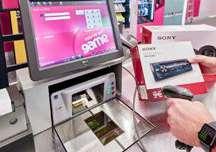
More recently, the Carrefour supermarket chain in Kenya unveiled a self-checkout service at its Nairobi Westgate Mall store.
“The self-checkout service underlines our ongoing commitment to creating
seamless shopping experiences for all our customers through adopting global best practices and solutions,” said Majid Al Futtaim’s Retail Regional Director for East Africa, Christophe Orcet.
“The innovative service will allow customers greater freedom, control and convenience while shopping.”
The service can be utilised by customers buying less than 15 items and is expected to be rolled out in all Carrefour stores in the country following a successful pilot.
Carrefour Kenya is owned and operated by Emirati-based holding company, Majid Al Futtaim, which also operates Carrefour in Egypt, the Middle East and Eastern Europe.
“The launch of the self-service checkout is a sign of intent from Majid Al Futtaim: it plans to roll out initiatives and technologies deployed elsewhere in its store network into East Africa,” commented emerging market consultancy Trendtype.
“This is as much about sending a

message to rivals Naivas, Quickmart and Chandarana – as well as to consumers – that the Carrefour brand in Kenya is at the cutting edge and looking to improve the customer experience.”
Currently, Carrefour Kenya operates 19 stores countrywide, with 15 in Nairobi and two each in Kisumu and Mombasa. As part of an ongoing expansion strategy, it has plans to open additional outlets in Kenya, as well as in Uganda.
According to research firm Research and Markets, the global self-checkout in-store systems market size is expected to reach US$10.5-billion by 2030, growing at a compound annual growth rate of 13.3%.
You can watch a short video of the Carrefour self-checkout service launch here
But researchers find that this only applies from Monday to Thursday, when shoppers are tired after a long day at work.
grocery shop from Monday to Thursday can expect in-store music to swell their shopping bill by more than 10 percent. This is according to new research from the University of Bath’s School of Management in the UK.
Weekday supermarket shoppers tend to be mentally tired from their working day and ‘pleasant’ music played in-store lifts their mood, making their decisionmaking on shopping items more intuitive, the research team found.
With less scrutiny of purchases, people buy more products, treat themselves to additional items, or upgrade the quality of planned purchases.
By Friday, as they head into the weekend, consumers are already feeling less depleted and consequently music loses its power. People have more time; they feel more relaxed and, in turn, happier. The way they process information and make decisions on purchases changes, and music no longer impacts on shopping spend.
The traditional Monday to Friday work week is so ingrained in society that the effect is seen even for people on a different work pattern, as well as for retired people, researchers say.
They interviewed supermarket industry executives and shoppers to gather information about consumer shopping habits and how they differ throughout the week, combined with field experiments. The team tracked purchases from 7am to 11pm, analysing sales of approximately 150,000 shopping trips.
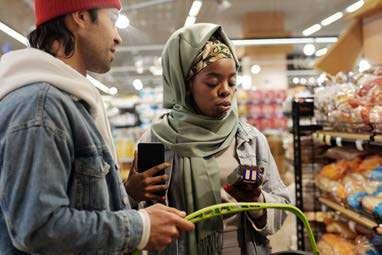
“During the week people are short of time and many get their grocery shopping done after a full day at work,” explains Dr Carl-Philip Ahlbom.
“Pleasant music appears to have a mentally soothing effect, which impacts the way people shop. At the weekend people are essentially happier, and so the positive power of music is less noticeable. In fact, playing music at the weekend may even mean people buy less, possibly because it’s an additional stressor in an already busy environment.”
Adds Professor Jens Nordfält, Codirector of the University’s Retail Lab: “The research points to a clear uplift in sales, with high returns on the relatively modest investments required to install in-store sound systems.
“For retailers this could be an attractive investment to boost weekday marketing. But clearly they will need to look to other techniques to match the effect at the weekend, when consumers
are feeling more energised and less susceptible to this particular strand of subconscious marketing.”

‘Understanding how music influences shopping on weekdays and weekends’ is published in the Journal of Marketing Research. Readers of our Digital Edition can find out more about the research here
Various academic studies around in-store music have been done. A 2010 research project by Icfai Business School in India found that different genres of music influence shopper behaviour. For example, while Western pop music influenced the time spent in the store, Indipop had a higher influence on the amount of money spent on merchandise.
Various studies show benefit of using music
The rise of gaming – which some experts say commands greater consumer attention than social media and TV combined – holds great promise for African marketers. By Fiona Zerbst

EVERYONE LOVES
playing games – something which became evident during the Covid-19 pandemic. Lockdowns may have forced us to stay at home, but many of us escaped into another world through the technicolour interactive playground of online and mobile gaming.
The growth in this pastime (or a ‘sport’ if you’re serious enough) is largely driven by social and casual gaming, with multiplayer games proving helpful to people’s mental health during the height of the pandemic, according to the World Health Organization. The market expanded by 26% between 2019 and 2021 as gamers bought games, consoles and other related products.
But gaming was popular long before the pandemic. Consumers now spend 40 times more money on gaming than on TV-related products, according to
market research company GWI, and the global gaming market is expected to be worth more than US$376-billion by 2028.

Growth figures in Africa are even higher, as the African gaming market is expected to increase from a market value of US$1,9-billion in 2023 to US$3,3-billion in 2028. At least 40% of South Africa’s population plays games, followed by 23% in Nigeria and 22% in Kenya. But how can African marketers cash in?
In Africa, most gamers play via their mobile devices. The most popular free mobile titles in 2022 were Candy Crush Saga, Subway Surfers and Craft School: Monster Class. Minecraft was named the most-downloaded paid-for gaming app across both iOS and Android stores. In Kenya, the most popular mobile game
in 2021 was eFootball PES.
Although gaming is often associated with younger generations, there was a 32% increase in gamers aged between 55 and 64, according to the 2022 Global Games Market Report by GWI. In addition, the richest demographic of gamers in the world is 35-to-55-year-old women. “This is known as the socalled ‘Candy Crush’ generation,” says Glenn Gillis, the CEO of Sea Monster Entertainment, the largest impact games studio in Africa.
While this is useful information, Gillis emphasises that marketers can’t just think about push advertising, which funds most casual gaming.
“The typical gamer will get rid of ads the moment they can subscribe to a game,” he notes. “They view the game as their space and don’t want their entertainment interrupted.”
The trick is to blend marketing
and gaming in a way that promotes an exchange of value, says Gillis, referencing his work with brands to ‘gamify’ the customer experience and grab their attention.
“Brands are good at rewarding customers, but not as good at creating a sense of belonging and connectedness, which can be ‘squishy’ and hard to measure,” he states. “If you get that right, however, you get brand loyalty, and gamification can do this well.”
Sea Monster has developed more than 70 impact games for different organisations worldwide. Recently, the company built a game for SA-based banking group Nedbank in the online game platform Roblox. It is called Chow Town and allows children to learn about entrepreneurship by becoming digital tycoons.
“Chow Town helps kids grow their own business from the ground up, in an Afro-futuristic street market space. Players start by selling humble boerewors (spicy mincemeat) rolls to customers, then progress through the game by building up a restaurant and offering more expensive menu items to customers, says Gillis.
“Kids spend up to an hour or more playing. Where else do marketers get the luxury of having 60 minutes to sell their story? They might get a fraction of a second on Instagram, where they’ll compete with thousands of other advertisers, as well as the next big influencers.”
Gillis says there’s has been a quiet revolution in web technology, which provides app-like functionality within a browser. “Web 3, a new iteration of the world wide web that’s accessible to anyone, makes it possible to engineer gaming and gamification experiences at a fraction of the usual customdeveloped cost,” he notes.
“It’s accessible to everyone on the continent that has an entry-level phone, with the least amount of friction.”
According to Chris Heaton, founder and Managing Director of Skrmiish, claimed to be the world’s first play-toearn gaming app (games where players earn real-life rewards) for AAA (highprofile, high-budget) games, brands are becoming increasingly aware of the potential of gaming platforms or channels to create brand equity and drive return on investment.

“Good examples include MTN Play, The Toyota Gaming Engine and (SA telecoms company) Telkom’s VS Gaming platforms, which are building relevance in the market,” he notes.
Meanwhile, game publishers looking to drive new revenue streams are keen to create more third-party advertising opportunities, as EA Sports has done with the FIFA franchise. “They’ve recreated all the real-world advertising spaces in-game and commercialised those along soccer governing body FIFA’s commercial guidelines,” explains Heaton.
He says there has been little ingame advertising from African brands, probably due to lack of access to gaming publishers to be able to activate effectively. “Premium brands have only started to take note of the gaming industry and activation opportunities
and value that exists there in the past five years or so,” he explains.
Brands can learn from the likes of online game Fortnite, which has led the way in innovative brand partnership activations, Heaton believes.
“In-game concerts for the likes of Marshmello, Travis Scott and Arianda Grande have attracted huge amounts of excitement and millions of song downloads for [these] artists, not to mention all the media coverage around these innovative events in Fortnite’s own Metaverse.”
Whether you opt for gaming, gamification, sponsorships and rewards on gaming platforms – or a combination thereof – industry commentators agree that the message you impart and how you get it across is absolutely critical.
“Brands no longer control the online conversation; consumers do,” says Bryan Look, Creative Director at SA-based agency YONDER. “To mobilise the conversation consumers will have about your brand, your content needs to inspire, educate, inform and engage in a way that is honest, relatable and authentic.”
He says Skrmiish has used a combination of Google Display Network and TikTok partner content activations to acquire customers. “These aren’t necessarily in-game activations, but rather activation of relevant channels that drive effective customer acquisition.”
For Gillis, a successful strategy isn’t about making a brand’s logo bigger, but about making it smaller, or even making it disappear. “It’s about creating a world the customer recognises instantly, powered by trust and good design.”
He says games that allow communities in Africa to solve their own issues would get “a billion advocates” and recommends brands think about gamifying the journey towards the Sustainable Development Goals.
“The intersection between brands, their purpose and how to be a force for good on the continent could be fruitful,” Gillis notes.
Heaton believes the best way is to engage with communities around games. “Have a greater understanding of their wants and needs,” he emphasises.
“Endemic brands are the ones that generally show the most successes as they are relevant to these communities. Brands that come in from left field and bring zero value to the gamer, while interrupting the gaming experience, are wasting their time and money.”
Fiona Zerbst has been a journalist and editor for over 20 years. She writes primarily about business and finance and has worked for publications and clients in South Africa, Botswana, Zambia, Nigeria, Canada, Finland and the UK.
Alex Wilson, Executive Creative Director at Amplify, a creative agency operating in Europe, the US and Australia, says elevating and not interrupting the gaming experience is key for audiences to accept what he calls “moments of marketing” in their worlds.
In an April 2023 article for the publication Brandingmag, Wilson says gaming is “not a space to market, it’s a marketplace”. When brands enter the world of gaming, they reach new audiences. Acting in appropriate and empathetic ways means they can authentically influence and elevate the player experience. He believes the simple equation for marketers wanting to be successful in this environment is: Insight + empathy = genuine ingame utility.
“[Food company] Heinz has achieved this with Hidden Spots Knowing that players struggled to find a window to grab a bite to eat during gameplay, Heinz teamed up with [video game publisher] Activision to identify safe in-game locations where players could park their characters and fuel up in the real world,” he explains.
“In a world where audiences are more accepting and expectant of entertainment from brands, it’s most effective when brands work to better communicate and connect through gaming and playable narratives.
“Most importantly, gamification doesn’t mean players or audiences are always looking to win. They are looking to progress, develop and level-up. But the focus should always be on the experience they have along the way.”

Zambia Institute of Marketing President, Mwewa Besa, has amassed a wide range of skills that bring non-traditional expertise to the marketing environment.
After initially gaining a marketing qualification, he then went on to complete an MBA with a focus on finance. This led him into the banking space, including a stint as a financial advisor with American Express in the United States.
Besa also worked in investment and retail banking, gaining exposure to the world of digital banking and becoming Retail Director for what was then Barclays Bank Zambia (now Absa). Fintech and micro-financing are also on his CV, but it was retail banking – with its strong marketing component –where he found his niche.
“It’s an interesting background, but everything brings me back to marketing and, for me, it’s a pleasure to be ZIM President,” he says.
Besa has a long involvement with ZIM. While working in the UK, he was a member of the Chartered Institute of Marketing (CIM). So it seemed logical, on his return to Zambia, to join ZIM.
profession is frequently embroiled in a debate over the legitimacy of marketing’s place in the boardroom – with a common concern being marketers’ perceived lack of financial and business acumen.
It’s not an accusation that can be levelled at Mwewa Besa, President of the Zambia Institute of Marketing (ZIM), whose varied experience means he comfortably straddles the divide between marketing and finance.

He subsequently became President and his two-year term ends in 2024. He has yet to decide whether to stand for a second term.
Discussing his aims for ZIM, Besa says he took over a financially constrained organisation and has been working with the ZIM team to bring financial stability – although he cautions that it is “not out of the woods yet”.
He believes the institute must build an asset base, including owning its own premises rather than renting in perpetuity, and create a framework to enable it to fund-raise.
Positioning the institute as a thought leader within Zambian business and society is also important.
“We must get ourselves into a position where we are driving thought leadership – to the point of being able to influence policy direction from a government point of view,” Besa emphasises.
“We need to be counted among the top professional bodies in Zambia. It means promoting marketing through a lot of lobbying and extensive engagement with different stakeholders, including the Ministry of Commerce. We must cement our position with all the key stakeholders in Zambia.”

On the topic of challenges and opportunities facing the profession in the country, Besa believes it’s vital to embrace the rapid global move to digital technology. “If you don’t grasp the opportunity you’ll be left behind … and then there’s no catching up,” he observes.
In Zambia, where marketing is controlled by an Act of Parliament, he foresees some push-and-pull between classically trained marketers and those who are entering digital marketing via the likes of IT.
“We must assimilate the changes that are taking place in our environment and ensure that we embrace those changes,” Besa states. “We must futureproof our profession.”


WHILE THE DESIRE
to seek ‘Joy’ in difficult circumstances is a notable consumer attitude, both in Africa and elsewhere, so too is a rising demand for ‘Trust’. Trust of brands, corporates, civic institutions and the authorities.

For example, brands targeting African consumers must blend digital innovation with customer trust if they are to be successful, according to a study conducted by Mastercard in conjunction with Harvard Business Review Analytic Services. The latter is
the independent commercial research unit within the famous Harvard Business Review magazine.
The briefing paper, entitled ‘Balancing Digital Innovation and Customer Trust in the Middle East and Africa’, was published in April and explores the continent’s current business landscape through the lens of an increasingly young population.
Among other things, it highlights that trust is an important lever for customer loyalty, business sustainability and innovation.
Around 60% of Africa’s population is younger than 25, and their embrace of a digital world that is purpose-driven and built on connection bodes well for businesses in a region that prioritises innovation. However, with economic activity increasing online, security and privacy are emerging as foundational not just for trust, but also for innovation.
The briefing paper reveals that over 70% of businesses in Africa recognise that service reliability and availability are paramount.
Digitalinnovations by businesses on the continent will fail unless they are accompanied by high levels of customer trust, study finds.
But less than half (42%) realise the importance of data security and privacy to customers, especially as digital tools and experiences become more common. To safeguard the trust of consumers and earn a license to innovate in the future, businesses need to recognise that innovation requires flexibility and commitment.
According to the researchers, consumers in the region are also quicker than their global peers to punish businesses for adverse events by withdrawing their trust and their spending – which raises the stakes for companies.
In addition, consumers in Africa have underlined the importance of strong values, with 80% saying they prioritised buying from businesses that act on causes they care about, a far higher proportion than the global average of 63%. This includes the environment, supporting small businesses, women’s economic empowerment, disaster relief, and humanitarian aid.
“Africa has seen extraordinary digital transformation over the past decade, and with each new milestone in digital inclusion, Africa’s young digital natives and early adopters present companies with an opportunity to reconsider their innovation priorities in line with the elements their consumers value,” says Amnah Ajmal, Executive Vice President for Market Development in Eastern Europe, Middle East and Africa at Mastercard.
“Trust is essential for innovation; it is the currency that underpins it. When consumers can trust businesses, it gives businesses the space and security to innovate, and that innovation can unlock prosperity across Africa for all Africans.”
Global public relations consultancy, Edelman, annually studies consumer attitudes to ‘Trust’ through its Edelman Trust Barometer. Among the African countries reviewed are Kenya and South Africa.
According to the consultancy’s 2023 Kenya Report, NGOs and the business sector are the most trusted institutions in Kenya – with teachers, NGO leaders and business leaders seen as a unifying force for a population increasingly grappling with personal economic fears relating to unemployment and higher costs of living.
The study says NGOs, business and media are all seen as competent and ethical institutions. Trust in one’s employer (among employees) matched trust in NGOs across the general population, both growing by three percentage points year-on-year to 76%.
Edelman believes this becomes increasingly relevant when taken in the context of economic optimism collapsing around the world, with 24 of 28 countries surveyed annually seeing all-time lows in the number of people who think their families will be better off in five years.
In Kenya, this figure saw a yearover-year double-digit decline (11pts), although 80% of people remain optimistic.
More than three-quarters of Kenyans surveyed believed that CEOs are obligated to hold divisive forces in society accountable by defending facts and exposing questionable science used to justify bad social policies (82%); and pulling advertising revenues from platforms that spread misinformation (76%).
Kenyans also believe that companies could strengthen the social fabric by supporting politicians and media outlets that build consensus and co-operation (on average 76%).
The onus has also been placed on CEOs to improve economic optimism by remunerating workers with a just wage, ensuring their local communities are safe and thriving, paying fair corporate taxes, and retraining or upskilling employees.
Most Kenyans expect CEOs to take a public stand on prominent issues including the treatment of employees,

discrimination, the wealth gap, climate change and immigration.
But, say the Edelman researchers, businesses are falling short of this mandate.
The majority of people feel businesses are not doing enough to publicly address pertinent societal issues like climate change, access to healthcare, economic inequality, and energy shortages.
This puts business at risk of losing the trust of consumers and employees, especially when considering that, globally, 63% of respondents said they buy or advocate for brands based on their beliefs and values. Similarly, globally 69% of employees, on average, agreed that a company’s societal impact is a strong determinant when taking a job.
Meanwhile, Edelman’s 2023 South African study found an overwhelming majority of people want the business sector to act as agents of accountability and co-operation in mending the country’s social fabric.
With business and NGOs perceived as the only trusted, competent and ethical institutions, the onus is placed on local CEOs to hold divisive forces accountable. Seventy-seven percent of survey respondents believe that CEOs are obligated to pull advertising money from platforms that spread misinformation and 70% of South Africans, on average, believe companies could strengthen the social fabric by supporting institutions that build consensus.
“Our data shows that South Africans are increasingly turning to businesses as trusted partners in addressing contentious societal issues” says Karena Crerar, CEO for Edelman Africa. “This emphasises the responsibility of businesses to leverage the power of their brands to create a shared identity, celebrating what brings us together and emphasising our common interests to strengthen the social fabric.”
Wars. Inflation. Infrastructure failure. In spite of difficult times, consumers are making a conscious decision to choose ‘joy’. Parusha Partab explains.

THE PANDEMIC HIT HARD.
Even as the world faced economic and socio-economic challenges, many lost their jobs overnight, the cost of living skyrocketed, and the hurt inflicted by humanity on itself increased inexorably, making the future seem bleak.
Yet some see beyond, despite the challenges and the bleakness, to redefine their expectations to view life for what it should be rather than how others paint it. It is they who believe that a better personal outcome lies in their own hands, not in the hands of others. It is they who provide the impetus for the rise of the ‘Joyconomy’.
While the Joyconomy has been recognised recently, a similar movement has already taken root. The Black Joy movement in the US, described as an act of defiance, juxtaposes the pain of prejudice with the deep love of life and the irrepressible desire to celebrate. In an article published in the Smithsonian’s National Museum of African American History and Culture, Elaine Nichols defines Black Joy as “resistance, resilience, and the reclamation of Black Humanity”.
Brandy Factory, co-founder of Upset Homegirls in 2021 in the wake of the killing of George Floyd, expressed how it feels: “Black Joy affirms that I am not a victim. I am an agent of change. I reject the idea that violence, injustice, discrimination, prejudice, and dominance over others are normal and acceptable
actions. It is development that manifests one’s ability to grow and succeed, to move beyond the here and now into a progressive future and the future of the unborn. Personal or collective development is the part of humankind that allows them to soar.”
As Africans, we are no strangers to adversity. But neither are we strangers to finding joy and expressing who we are. Renowned Nigerian author Chimamanda Ngozi Adichie reflects a vibrant and optimistic outlook in her works. Mia Couto, a celebrated Mozambican writer, is known for his optimistic storytelling. His novels are filled with magical realism, poetic language, vivid imagery and a sense of wonder, with narratives that inspire hope and reflect the beauty of the human spirit.
As marketers, we recognise the power of brands that inspire and reflect the spirit of the times. Brands that align themselves with the hopes and aspirations of consumers become beacons of hope and catalysts for positive change. Prosperity and growth follow.
These are some tactical manifestations of Joy you might find relevant as you, the brand custodian,
Recognise the power of inspiring brands
› Many consumers are choosing the liberty of joy over the shackles of gloom

consider ways of connecting with your audiences.
The BMW Next Generation Joy campaign is centred around sharing the audacious attitude and progressive spirit of the brand by showcasing the inclusive and bold vision of the next generation of BMW drivers. The colour palettes draw from the rich, uniquely African colour tapestry, making the
work bold in emotion and bold in expression. After all, it is an expressive force that colours our outlook on life.
Just as Ridley Scott’s ‘Blade Runner’ portrayed a bleak future, today’s vision of the world is filled with vibrant colours and tones, exuding the joy of life. Pantone’s colour of the year, ‘Viva Magenta,’ described as “an unconventional shade for an unconventional time,” encourages brightness, hope and inner strength. Benjamin Moore, an American paint
› There is a growing partnership between joy and the positive use of technology
manufacturer, echoes this sentiment with its Raspberry Blush Colour of the Year 2023, aiming to infuse happiness into our lives. Joyful consumers and marketers see the world vividly and viscerally, defying the pervasive gloom.
Much like the Made of Monate Telkom Brand Campaign, which affirms how the telecoms brand connects all South Africans through cross-

generational advertising. In a world of inequality and exclusion, joyful citizens demand that the brands they support prioritise accessibility and inclusion.
According to a Wunderman Thompson Insights Team survey, 86% of global respondents believe that brands should work with, not for, disadvantaged groups to make a meaningful impact. This partnership between joy and technology further redefines accessibility. Rapid technological advancements, the Metaverse, augmented reality, virtual reality, and artificial intelligence, have opened new possibilities for advancing accessibility.
Standard Bank’s #HearHerVoice campaign gives victims of gender-based violence a platform to share their stories, encouraging others to share theirs to find hope and help.
Virtual reality is being harnessed to inspire activism, to transform passive audiences into active citizens.
DoorLabs, an NFT and Web3experience digital brand, states that being a citizen in an immersive world is a fundamentally different experience than being a passive audience member. This integration of joy and technology enables individuals to actively participate in shaping their reality, fostering positive change and uplifting their spirits.
Standard Bank, in partnership with shoe brand Bata Toughees, aimed to raise consciousness and donations for the 7-million pupils who walk to school barefoot in the aptly titled campaign, Walk With Us
In the realm of app design, platforms are being developed to cultivate positivity. Apps like Gas, which promote compliments and positivity among users, create a cooperative and encouraging environment where positivity is the new currency.

Niche apps, a new concept in social media, focus on creator-owned content rather than user-targeted content. Decentralised Web3 applications consist of members, not users, who engage in communities generated in the app based on interests and genuine connections. This offers a clue to the definition of like-minded engagement rather than seeking ‘likes’ and digital promotion.
Christopher Gulczynski, CEO of Niche – which creates online members-only clubs for communities, groups and hobbies – affirms: “We see social media getting smaller, more intimate. People move towards these networks with like-minded shared interests, backgrounds, or identities.”
The future of social media is where people have options, control, and power in their social interactions online, mirroring their in-person expectations. People choose to connect with what they enjoy spending time with and don’t see the content they don’t want to see. Emerging social media platforms tap into the desire for positive change by formulating feeds around positivity and upliftment.
Regarding the healing benefits of physical activity, there is a growing focus on using joyful activities to improve mental and physical well-being. The ‘joy workout’ concept is emerging,

New platforms are promoting positivity› McDonald’s introduced Happy Meals for adults, serving up a toy with popular menu items
consisting of exercises intentionally selected to make people happy, going beyond the physical workout.
Fitness tracking brand Fitbit now monitors stress through its wearables to alert wearers to their mental health. The integration of technology and well-being promotes a holistic approach to happiness and encourages individuals to prioritise their mental and physical health.
Standard Bank’s current social experiment, entitled ‘What would your money say about you’, aims to get consumers to question where and how they are currently spending their money to instil long-term good financial behaviour.
Companies like McDonald’s are reimagining experiences to evoke a sense of joy and playfulness. McDonald’s introduced Happy Meals for adults, serving up a toy with popular menu items. This reimagining of a childhood experience taps into nostalgia and the excitement of discovering what’s inside, offering a playful and joyful moment for adults.
The ‘What The Fanta’ campaign was a limited edition, mysterious flavoured soft drink that was designed to challenge consumers’ senses and

taste buds through clues and missions in order to guess the mysterious flavour.
As the joy world contemplates a better future, the realisation is that inclusive and mutually beneficial societies are the right moral path, with economic and socio-economic benefits for all. The exponential advances in technology create more intimate social networks, fostering environments of shared knowledge and interests that are both helpful and hopeful. Ownership of creation and creativity is shifting to the creator, disrupting traditional models.
mouth. They differentiate themselves from competitors by offering unique and uplifting experiences.
Positive brand perception increases preference, customer acquisition and sales performance. Customer loyalty is fostered through positive experiences, leading to repeat business. Brand advocates share their positive experiences, boosting brand visibility and attracting new customers.
But when all is said and done, brands that embrace an inspirational, upbeat and optimistic approach have the potential to experience better growth. While factors like product quality, marketing strategy and market conditions also play a role, the overall brand image and perception are crucial in attracting and retaining customers.
Inspirational brands create an emotional connection with consumers, leading to loyalty and positive word-of-
Parusha Partab, Group Strategy Director for Wunderman Thompson South Africa, is an experienced strategic consultant in marketing, digital and advertising. She’s completing a BA (Hons) in Information Design at the University of Pretoria. She has 10+ years of experience in digital, creative, e-commerce and marketing strategy, strategic brand consulting and customer experience (CX & UX).

Inspirational brands connect emotionally› Standard Bank has partnered with shoe brand Bata Toughees to raise donations for the 7-million pupils who walk to school barefoot › Parusha Partab, Group Strategy Director for Wunderman Thompson


New arm is responsible for the career development activities of marketers, salespeople and other business professionals in the country.
TAssociation of Zimbabwe (MAZ) recently made history by launching its Business Institute, further cementing the association’s position as the home of professional development in marketing and related professions in Zimbabwe.
MAZ Business Institute is the arm responsible for undertaking the career development activities of marketers, sales professionals, customer
relations practitioners and other business-related professionals.

The institute’s operations are guided by MAZ principles and values. It comprises three strategic business units (SBUs): MAZ Institute of Digital Practitioners; MAZ Institute of Sales Professionals; and MAZ Institute of Customer Experience Practitioners.
Senator Monica Mutsvangwa, MAZ Patron and Minister of
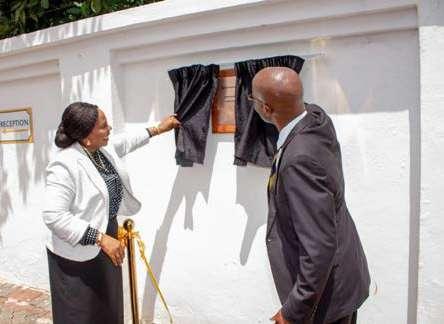
Information, Publicity and Broadcasting Services, officially launched the MAZ Business Institute.
In her speech, she highlighted how business trends are changing and urged Zimbabwe’s marketers to always be alert to these.
“Globally, the business trends are changing very fast. This therefore calls you, the marketers and communications professionals, to be at the forefront of presenting your brands,” she stated.
Minister Mutsvangwa said digitalisation of the business world and its processes, as well as the advent of social media, had completely revolutionised the way businesses communicated with their customers.
“Social media is a very powerful medium which can either destroy or build brands, as well as nations. We have to tailor-make our products and services to the demands of customers. Even as government, we take communication seriously, as we need to keep abreast with technology,” said the Minister.
Minister Mutsvangwa said poor marketing strategies will never last
long as they fast disappear from people’s memories.
“As government, we expect responsible communication from you as you have a very broad influence – not only on people’s choices, but even the world’s view. Let’s engage in professional marketing that does not contain inflammatory language and hate speech. As we ride on current affairs in our social media marketing, let us also be wary of insensitive messages,” she said.
In his opening remarks, MAZ Vice President, Mr Liberty Kazhanje, said the push to launch the Business Institute was due to growth in the market leading to skills gaps in the industry.
“We saw a growing need in the market for re-skilling and up-skilling of the workforce in order to capacitate them for current trends for the benefit of the employees. Through various engagements and partnerships, we are excited to finally unveil the MAZ Business Institute to the world,” he stated.

MAZ Executive Secretary, Mr Gillian Rusike, said the establishment of the Business Institute was in line with Education 5.0 being promoted by the government.
“The Institute is part of Education 5.0 and we are working with industry and institutions of higher learning to enhance our programmes and make sure that the calls by the President are incorporated at industry level,” said Mr Rusike.
He added that MAZ was committed to upholding professionalism in the marketing and related professions in the country and beyond, as seen by synergies with other regional marketing bodies.
Mr Rusike said the cross-border partnerships had seen MAZ offering the Digital Marketing programme to students in Malawi and Zambia. MAZ was also working on a partnership with Kenya.
The association’s Head of Academics, Mr Godfrey Dube, highlighted that MAZ boasted a team of trained facilitators as well as strategic partners – Bindura University of Science Education, Harare Institute of Technology, and the Institute of Marketing Management, among others – who will be in charge of these Institutes to ensure that excellence and relevance prevails.
He assured delegates that the MAZ
Business Institute would abide by, and uphold, the standards of the country’s education system.


“Ladies and gentlemen, as MAZ we commit to uphold the standards of the education system in the country on all our programmes,” emphasised Mr Dube.
In her closing remarks, the association’s Head of Marketing and Operations, Mrs Enia Zimunya, thanked everyone for the support that enabled the successful launch of the Business Institute – mentioning the MAZ Training Team, Ministry of Higher and Tertiary Education, and the Harare Institute of Technology – as well as the committee steering the ship for the new MAZ Business Institute.
She implored marketers, human resources personnel, business executives, entrepreneurs and others to support the Business Institute.
MAZ Business Institute operates under the administration of the Marketers Association of Zimbabwe. Its long-term purpose is to provide professional programmes that will prepare business executives, entrepreneurs, students and others to become successful business professionals in an increasingly diverse and interconnected workplace.
‘Great day of learning’ as marketing professionals and senior business executives share insights, strategies and ideas at Nairobi gathering.
MARKETERS IN KENYA again showed up in their numbers to support the annual Summit hosted by the Marketing Society of Kenya (MSK), with this year’s event taking place on 26 May at the Movenpick Residences Nairobi Hotel. The event is a platform for local marketers and those working in related



industries to connect, learn and share ideas on the latest trends and strategies. Zuhura Odhiambo, newly elected Chairperson of MSK, said it was “a premier gathering of marketing professionals sharing insights, strategies and ideas aimed at shaping the future of the marketing industry”.
This year’s keynote speaker was Ali
Hussein Kassim, a serial entrepreneur who operates at the intersection of marketing and technology. His topic was ‘Emerging Trends and Opportunities’. Key participants in break-out sessions and panel discussions included: Rosalind Gichuru, Group Director for Marketing and Communication at KCB Bank Group; Joseph Choge, Group
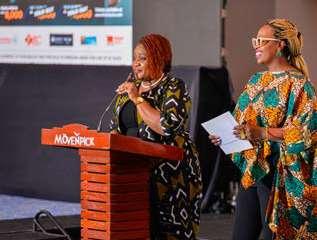
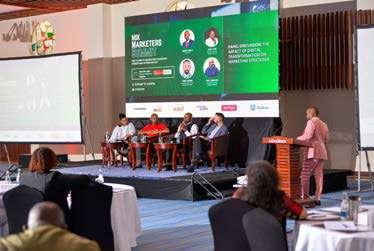
Managing Director of Unga Group PLC; Daniel Oseman, Managing Director of Kantar East Africa; Andrew Lewela, CEO of Kenya Network Information Centre (KeNIC); and Mary Gitari, Principal Partner at Brand Spark PR. The overall theme for the event was ‘The Future of Marketing: Emerging Trends and Opportunities’.
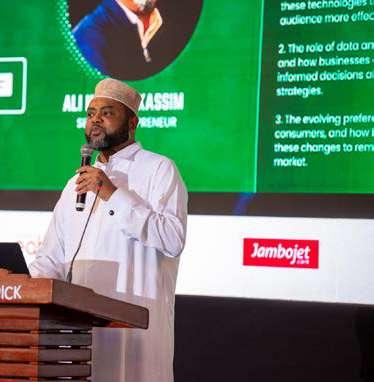


Increasingly, multi-nationals see a need for a direct presence somewhere in sub-Saharan Africa. Kenya may be best placed to take advantage.
OF
in sub-Saharan Africa to be optimistic about, the most promising is Kenya. Economic and political forces are converging to put the continent’s seventh-largest nation in a relatively favourable position to make it the ‘Singapore of Africa’.
This is according to Tyler Cowen, Professor of Economics at George Mason University in the US, author and columnist for financial news agency Bloomberg.
He says Africa is the fastestgrowing continent and is expected to account for one-quarter of the world’s population by 2050. That means more multinational corporations see a need to have a direct presence somewhere in sub-Saharan Africa.
Many such companies already realise they need a presence in Asia, with Singapore proving increasingly popular as the hub,
Where in Africa might such a comparable cluster of companies evolve? Economic growth has slowed in Nigeria, and the country has only begun to make much-needed reforms. Ethiopia, the second-most populous country, just emerged from civil war; political problems and power shortages plague South Africa.
“In contrast, a locale with a reasonable level of English fluency and an attractive year-round climate will get a lot of attention – and that nicely describes Kenya,” Professor
“Kenya also had a growth rate of about 5.5% last year, despite negative shocks to the prices of imported food and energy. Since 2004, growth rates have been in the range of 4% to 5%.”
He believes Kenya also has some geographic advantages. It has an extensive coastline on the Indian Ocean, and research suggests that landlocked countries have worse economic performance.
In the current geopolitical climate, East Africa is attracting more interest from more sources than is most of West Africa.
“It is also possible that sub-Saharan Africa will not develop a single dominant corporate hub at all,” Cowen notes.
“The United Arab Emirates will continue to evolve into Africa’s financial
centre, Lagos will have the most startup activity, South Africa will remain the dominant business centre in the South – and London, Beijing and India will play more important roles in Africa’s economic future.”
He continues: “Still, African distances are great and its population is growing, two simple facts that argue for Kenyan growth no matter what. The idea of putting a manufacturing plant or service centre near Nairobi or Mombasa makes sense even if it serves only East Africa.
“Kenya’s immediate neighbours to the west and south, Tanzania and Uganda, also have an Englishlanguage background, and Tanzania may become one of the world’s most populous countries.
“Not only is Africa rising, but East Africa is too. And Kenya is likely to be the easiest and most predictable way to bet on it.”
Regional brand survey, involving all 16 regions of Ghana, aims to unearth and highlight the economic and tourism opportunities in each area.
THE CHARTERED INSTITUTE of Marketing, Ghana (CIMG), officially unveiled the Ghana Regional Brand Index (‘CIMG-RBI Report 2022’) recently. The event, held at the Labadi Beach Hotel in Accra, took a hybrid form and attracted an audience from across Ghana and the continent of Africa.

‘CIMG-RBI Report 2022’ is the culmination of a well-researched regional brand survey which was conducted last year, involving all 16 regions of Ghana, to unearth and highlight the economic and tourism potential of each regional brand.

In his welcome address, the National President of the CIMG, Dr Daniel Kasser Tee, said the aim was, among other things, to complement and reinvigorate government’s original Brand Ghana agenda.
The report also contributed to giving meaning to Ghana’s ‘Year of Return’ and ‘Beyond the Return’ programmes, a homecoming package that focuses on getting Africans in the diaspora to keep patronising Ghana as a home, and promotes Ghana as the ultimate tourism and investment destination.
“The CIMG aims to create mass awareness about the existence of the 16 regional brands and, later, the 261 Metropolitan, Municipal and District Assembly brands – all classified as sub-brands with distinct and unique potentials for attracting patronage to boost their local economies,” Dr Kasser Tee added.
Key pillars for the study are measures deemed to be of value to local and international visitors, whether tourists or business travellers.
Dr Winfred Nelson, Director of the Development Coordination Division at the National Development Planning Commission, and Chairman for the occasion, applauded the CIMG for setting the pace and highlighting the strengths of the regional brands through this research.
“The beginning may not be clear, but at the end it will be beautiful because we are going to use it in our national development planning efforts,” he said, emphasising the commission’s readiness to partner with CIMG in all its research projects.
Delivering a message on behalf of the Honourable Minister for Foreign Affairs & Regional Integration was Ambassador Mrs Hannah Nyarko, Coordinating Director, Political & Economic.
She expressed delight with the launch of the ‘CIMG-RBI Report 2022’, stating that “one of Ghana’s
cardinal foreign policy objectives is the promotion and protection of the interest of Ghana abroad”.
“We promote Ghana as a preferred investment and tourism destination. We look for a market for Ghanaian products. And, in so doing, we mostly engage the Ghana Investment Promotion Centre, the Ghana Export Promotion Authority, the Chamber of Commerce, the Ministry of Tourism, and other institutions. We are happy that, with this study, we will have a source of reference to use in our work,” Mrs Nyarko added.
She believed that with the African Continental Free Trade Area now in effect and the secretariat established in Ghana, a new era of trade had commenced. As a result, the role of the CIMG had become essential. This was because of “the need to vigorously market products in Ghana that can be exported to other African countries, since the objective of the African Continental Free Trade Area is to promote and enhance intraAfrican trade”.
Launching the ‘CIMG-RBI Report 2022’ was Professor Kweku AppiahAdu, Head of Delivery, Monitoring and Evaluation at the office of the VicePresident.
He indicated that he was looking forward to collaborating with CIMG in diverse ways, adding that he was impressed with the research and the quality of data gathered, as data is integral to the Presidency’s agenda of digitalisation.
Data, research findings, and the ability to use the data effectively for decision making would be the gamechanger in Ghana’s efforts to become digital, Professor Appiah-Adu believed.

CIMG also recently launched its Chartered Marketer brand in the country. The ceremony in early May was a significant milestone in the history of marketing in Ghana.
The Chairman for the occasion, Professor Stephen Adei, who is also a Patron and Fellow of CIMG, shared his memory of being a Chartered Marketer for the first time, adding that the event was significant because of the impact it will have on aspiring marketers, as well as the marketing industry as a whole and on Ghana as a country.
In his welcome address, the National President of CIMG, Dr Kasser Tee, congratulated the new inductees whose names have been entered into the register of CIMG Chartered Marketers, describing their induction as a “recognition of their diligence and dedication”. He urged them to use their new status to “change the narrative in the industry and build everything they do around the interest of the customer”.
Dr Tee emphasised that “marketing exists to create value for the long-term interest of the business by researching about the customer, competitors, market trends and internal issues within the organisation”.

Annual ZIM Conference hears that local marketers can upskill to make a vital contribution to tourism and national economic growth.
are utilising the right digital strategies to promote their services.
TOURISM IS AN absolute game changer for Africa. So declared the Pro Vice-Chancellor of the Ghana Communication Technology University, Professor Robert Ebo Hinson, in a keynote address entitled ‘Bold Moves, Big Impacts: Leveraging Tourism, Investments & Exports to Transform Communities and Industries’ at the 26th Annual Zambia Institute of Marketing Conference and Awards Gala Dinner. The event, which attracted top marketers from Zambia and other
parts of Africa, was held from 19-22 April at the Radisson Blu Mosi-OaTunya, Livingstone Resort.
In the presence of Zambia’s Minister of Commerce and Trade, Hon. Chipoka Mulenga, Professor Hinson submitted that tourism industry associations should perform periodic marketing audits to ensure Zambian tourism marketing products and services are still fit for purpose.
Further to that, also perform periodic digitalisation and innovation audits to ensure that Zambian tourism operators
On the role of the Zambia Institute of Marketing (ZIM) in growing the GDP of Zambia by improving tourism sector performance, Professor Hinson argued that ZIM should liaise with the Zambia Tourism Authority to conduct a National Tourism Marketing Audit and utilise the inputs from the National Tourism Marketing Audit to develop a new technology driven Zambian Tourism Marketing Strategy spanning 2024-2027. ZIM also should liaise with progressive higher education institutions to establish a one-year technology driven master’s degree in Hospitality and Tourism Marketing, Professor Hinson said.
They should also consider coordinating with relevant industry associations to develop appropriate short courses to boost the skill content of Zambia’s tourism sector, with a focus on topics like AI and Digital Management, B2B Marketing, Global Business Management, and Customer Experience Management.
Research by the World Tourism Trade Council (WTTC) projects that, between

2022 and 2032, tourism’s contribution to the global economy should grow at an average annual rate of 5.8%, which is more than double the 2.7% average annual growth rate estimated for the global economy.
On her part, the Registrar and CEO of the Zambia Institute of Marketing, Mrs Lute Lungu Mwelo, welcomed the keynote speaker to Zambia and urged the marketing fraternity to use the conference as a forum to exchange knowledge and information to facilitate the development of tailor-made marketing strategies that respond to consumer’s needs.
In his speech, Zambia’s Minister of Commerce, Trade and Industry, Honourable Chipoka Mulenga, challenged marketers at the conference to reflect on questions such as: “How can we explore export markets to grow our non-traditional exports?”
Other questions to be considered, the Minister said, included “How can we improve the quality of our products and raise the bar on how Zambian products are perceived?” and “How do we increase the number of tourist
arrivals and prolong their stay?”
The Minister charged the Zambia Institute of Marketing to collaborate and create market synergies, utilising its collective strength to ensure Zambia becomes self-sufficient and a regional trade and investment hub.
Mr Mwewa Besa, the President of the Zambia Institute of Marketing, also opined that the Zambian business environment has remained extremely volatile and, in the quest for local marketers to retain their relevance as a ‘key to prosperity’ (a key theme of the conference) they have a duty to devise strategies that will not just
make Zambian institutions survive, but thrive in the face of economic and business turbulence.
The conference was well attended, with speakers from both within and outside of Zambia, and representation from public and private sector entities – including Toyota, Prudential Life, the Zambia Revenue Authority and the Securities and Exchanges Commission.

Two Ministers representing the Government of Zambia were present and participated throughout the conference. The African Marketing Confederation was represented by the AMC President, Helen McIntee.
The conference concluded with the Marketing Awards Ceremony and Winners Party. The theme for this year’s party was ‘Havana Nights’. The key winners this year were:
1. Product Innovation of the Year: Kansai Plascon
2. Best Product Launch: MultiChoice Zambia

3. Best Brand Campaign: Airtel Zambia
4. Best Customer Service (Public Sector): National Health Insurance Management Agency (NHIMA)
5. Best Customer Service (Private Sector): ATLAS MARA Bank
6. Best Digital Marketing Campaign: Airtel Zambia

Most African nations are melting pots of cultures, ethnic groups, languages and religions. Delivering customer service excellence while respecting the required norms is challenging.
Extract from the book Customer Service Management in Africa – A Strategic and Operational Perspective. Chapter on Culture and Service Delivery Outcomes in Nigeria.
NIGERIA’S NATIVE population numbers over 150 million people (Federal Government of Nigeria, n.d). The country operates a presidential system of government with a dual economic system of traditional agriculture and the trade sector. The country is endowed with both human and natural resources that drive its economic activities and industrial growth. Nigeria is rich with cultural heritage and is home to more than 250 ethnic groups with different
values, norms and religious practice. Consequently, Nigeria is a culturesensitive nation but provides a large market for organisations to tap into and make a profit. To be successful, business organisations in Nigeria must offer products and services that attract and sustain customer patronage in a multicultural society.
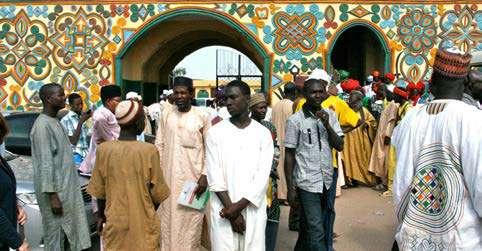
Understanding the nexus between culture and customer service delivery outcomes in Nigeria is best discussed using Hofstede’s five metrics of
culture: power distance, uncertainty avoidance, individualism vs collectivism, short-term orientation vs long-term orientation, and masculinity vs femininity (Hofstede, 2001).
Power distance relates to the unequal roles and positions occupied by people in a society, namely between elected or appointed county or local representatives and the general population. The understanding of this power distance, as defined by status and class, and

alignment with the demands of those groups enables organisations to achieve effective customer service delivery in Nigeria. The Nigerian culture tends towards high power distance (Okeke, 2017) and it respects hierarchies in the workplace and society. It is important to design an effective customer service strategy to reflect an appropriate level of consciousness of social stratification within the market.
Uncertainty avoidance describes a situation in which people feel threatened by, and try to avoid, ambiguity. Nigeria’s cultural tradition leans towards intolerance of ambiguous processes, so businesses must communicate a position of trustworthiness to consumers if they want to attract and sustain customers’ patronage. Consumers in such a society will avoid products and services with unclear terms which they perceive to have some element of risk as they have been acculturated to avoid uncertainty.
Individualism vs collectivism stresses the cultural belief and orientation that questions which is more important, the group or the individual. Individualism is a social theory that the ‘self/person’ is more important than the collectivist ‘group/we’. The ‘group/we’ concept holds that an in-group member’s values are developed, promoted and protected by all. The Nigerian society reflects more of collectivism dimension than individualism, and this is demonstrated by their strong group ties (Okeke, 2017).
Short-term vs long-term orientation: Hofstede (2001) explained that the cultural orientations of a society inform the plans, objectives and goals of individuals in that society. A society and its members are categorised as having long-term orientation when they focus on the future and are willing to delay shortterm success or gratification to achieve future satisfaction/goals, exhibiting perseverance, persistence, saving and
adaptability. Short-term orientation is a characteristic of individuals who seek immediate gratification; present or past traditions are more important than consideration of future outcomes.
A society and individuals with shortterm orientation will hold in high esteem traditions, current social hierarchies and the fulfilment of social obligations. Organisations must be aware of the ways target customers’ cultural orientations shape their lives, actions, plans, goals and objectives and how that orientation influences the design and marketing efforts of their product or service. For example, a market dominated by individuals with shortterm orientation will find it difficult to accept an innovation that erodes their experience and current belief systems. For example, if a fabric designer introduces a trending Western cloth to women in a society that cherishes traditional attire and is not receptive to change, it will be difficult to gain market share in that short-term culture.
Masculinity vs femininity is a cultural concept that addresses the nature of a society’s assigned gender roles. Masculinity emphasises the importance of achievement and material rewards; femininity is associated with caring for others. A culture with a masculine orientation will differentiate work-related assignments for males and females, unlike a feminine culture that is less gender-conscious in the workplace. Nigeria is a masculine society (Okeke, 2017), with material success held in high esteem. Organisations must consider the societal structures within which they operate and take into consideration the cultural values of the society in designing their customer service programmes and strategies.
Failure to recognise the culture of a social environment will turn customers away. A customer service delivery system designed to identify and blend in with culture of the society will create deep connections with the consumers, increase customer retention, and enhance organisational performance. In addition to Hofstede’s five dimensions of cultural value, Commisceo Global Consulting (2019) found cultural influences unique to Nigeria which are language and communication dynamics, religion, family, hierarchy, etiquette and customs.

Dynamics: Nigeria has over 500 languages among 250 different ethnic groups. With this number of languages and ethnic group variations, it is difficult to have a generally accepted lingua franca, though most Nigerians have adopted English as its general spoken and written language for official purposes and business transactions. It would be detrimental to a business if a customer service representative or the business management themselves decide to adopt a local language as their means of communication with customers, except in an area where it is certain that the locals do not understand English. Customer service representatives must, therefore, be careful not to send the wrong message to customers by trying to communicate in languages that others cannot understand. This justifies the need to understand and apply individualism or collectivism metrics in different geographic contexts.
Also, the nature of the environment should decide what language a business should adopt. In Nigeria’s urban areas, English is best for the majority, while another language or dialect will be appropriate in areas far from the urban centres. Rural dwellers who speak a local dialect could feel embarrassed or annoyed if a business attempts to communicate with them in English,
making a purchase unlikely. The same could be said in the case of urban dwellers who are not fluent in a local dialect and thus uncomfortable with companies that conduct business in local languages. The customer service process must be cognisant of language dynamics to attract and retain customers in different areas.
Religion: The most prominent religions in Nigeria are Christianity, Islam, and worship of traditional deities, institutional allegiances which the majority of the population do not take lightly. Organisations have to take into consideration, the religious hours, days, or observances if they expect to appeal to certain categories of customers. Products and services that are controversial among certain religious groups should not be displayed or otherwise marketed in places where a strong religious influence is evident; the result will be fewer sales and even alienation to the company.
During the Ramadan period (the Muslim fasting period), products such as alcohol, when marketed indiscriminately in a Muslim-dominated environment, can be seen as culturally ignorant and insulting, and may lead to chaos. However, after Ramadan, the Muslim population may be less sensitive to the matter. Likewise, the times of worship for the different religious groups (i.e.

Friday afternoon for Muslims, Sunday morning for Christians, and various seasons for traditional worshippers) must be respected. In essence, products and services that conflict with religious beliefs and traditions must be avoided. Similarly, the dress code of an organisation’s representatives should conform to the customs of the locals. That is why organisations in some
states in Nigeria wear the environment’s local attire on Fridays to communicate oneness. Businesses that wish to appeal to the entire population of their market area must not be perceived to be biased for or against any religious group, or they risk alienating potential customers from their organisations’ goods and services.
The Family: Businesses that hope to attract and retain customers must enforce policies that will correctly assess family needs and provide benefits for the entire family. Collectivism, as a metric of culture (Hofstede, 2001), is applicable because it prioritises meeting the needs of a group over self-interest. Collectivism describes the aspect of culture that seeks the satisfaction of group members, meeting their needs and putting smiles on their faces. When an organisation provides customercentred services that focus on the whole family across generations, it will boost sales and enhance customer

satisfaction. Telecommunications companies in Nigeria, for example, offer special packages for families to connect with each other at reduced rates. Banks provide accounts for families to save for their infant children. Offering special programmes and promotions that meet the needs of the family will attract patronage, enhance customers satisfaction, and improve business performance.
to ‘If a child washes his/her hands, he/she will dine with elders’. These cultural proverbs reinforce the idea that the wisdom of the elderly cannot be comprehended by the young and emphasises the sanctity of hierarchy.
addition to the generally accepted standards of polite conduct, Nigerians expect the following:
• Greet customers at every point of contact with a welcoming smile and eye contact. It is rude to rush the greeting process.
• Ask about the individual’s health and well-being as well as his/her significant other and family; this is considered to be a sincere and friendly interaction.
• Shake hands, but be aware that some religions and cultures do not allow any physical contact, including handshakes, between members of the opposite sex.

• Acknowledge a customer’s title or honorific (Alhaji, Pastor, Imam, Chief Priest, Prophet) and name; a sign that they are held in high regard.
• Bow to greet someone who is older; this is considered a sign of respect.
Hierarchy: Respect for elders is woven into Nigeria’s cultural fabric. The elderly occupy a social status that signifies wisdom, and abundant knowledge which calls for respect. Even a local adage from Nigeria’s Yoruba tribe says, ‘ti omode ba ni aso bi agba, kole ni akisa bi agba’ meaning ‘a child can have clothes like the elders, but not rags like the elders’. In Isoko, it is said ‘Omaha te who ewun whoho okpako, osa who eno efa no who ho ekpako na ha’ and in Igbo the saying ‘Nwata kwo aka, osoro okoye rie nri’, both translate
The elderly should be treated with special care and respect. In a situation where the old and the young are in a service delivery queue, an organisation’s employee is wise to attend to the elderly customer first, an action that will be perceived as cultural sensitivity to the customers, both young and old. This scenario confirms the power distance metric of culture (Hofstede, 2001), because the awareness and acceptance of the unequal power of a social group allows for preferential treatment between the young and the old without any chaos. Thus, as an element of building customer satisfaction, an organisation must recognise in its customer service delivery, the culture of power preference, which must be respected and observed.
Etiquette and customs: Organisations doing business in Nigeria should understand that there are basic etiquette rules that should be observed when attending to customers in person. In
A customer service delivery plan should instil in employees the importance of understanding local etiquettes and customs when engaging with customers. This strategy aligns with masculinity and femininity metric of culture (Hofstede, 2001). Such practices are gender-specific, respectful of religion, and culturallybound to distinguish the nature of the society. Excellent customer service delivery understands the importance of greetings; gender-related sensitivity and the use of appropriate religious titles vary in different societies, but must be identified, observed and respected. For instance, societies that value masculine characteristics hold titles in high esteem, while the values of feminine societies have less concern for titles but rather for care and concern for the quality of life (Hofstede, 2011). Gift-giving etiquette is worth special consideration by businesses. The presentation of gifts is seen as

The elderly must be treated respectfully
a way of showing love and care in Africa. The customer service delivery system should include gift promos for customers during festive seasons as well as give honour and awards to repeat customers. These acts communicate care and love to the customers and give them the feeling that their patronage is appreciated. Varying categories of gifts can be created for different customers in such a way that the gifts can be apportioned to all customers depending on the value of their purchase. Gift-giving could be a unique aspect of the customer service delivery system if properly utilised to create a long-lasting experience with the customers.
Conclusion

Culture is an integral part of every social institution and cannot be neglected by business organisations if they wish to become successful. Customers are the main focus of every business, and meeting their needs should be the

centre of any business plan. Developing a customer service delivery system that will align with the culture of the people is critical to ensuring customer satisfaction.
Hence, the understanding and application of the five metrics of culture and other identified factors that influence culture in different contexts are imperative for excellent customer service delivery.
In Africa specifically, businesses should study the culture of a target audience, then design customer service programmes that align the standards and expectations of the business with those of the people it hopes to serve. Business managers, when designing customer service delivery processes, must ensure each interaction built into those processes take cognisance of the language, religious allegiances and gender-related customs of the people in order not to cause unintended offence. By acknowledging and respecting these attributes, companies can also use this knowledge to their advantage by
building bonds with customers through appreciation of their cultural norms. Respect for persons, especially the elderly, is a cultural norm that a service delivery process must exhibit at all times if positive customer experiences are to be created where the culture of a society values offering gifts, developing customer loyalty programme should include promos, gifts and freebies. Finally, to achieve customer satisfaction and increase customer loyalty and retention, businesses in Nigeria and the continent of Africa must put into consideration the culture of the society in designing customer service delivery systems.
Customer Service Management in Africa – A Strategic and Operational Perspective is edited by Robert Ebo Hinson, Ogechi Adeola, Terri R. Lituchy and Abednego Feehi Okoe Amartey. It is published by Routledge, an imprint of the Taylor & Francis Group. Further information: www.routledge.com
PHOTOS: JAMIE TUBERS, I. FEMORA AND ALLAN LEONARD @MRULSTER VIA WIKIMEDIA COMMONS; MIKHAIL NILOV FROM PEXELSQuality marketing education is the key to your future! Grow your skills, enhance your career prospects and develop your marketing knowledge with the AMC.
ONE OF THE KEY mandates of the African Marketing Confederation (AMC) is to provide opportunities for education and further learning to our membership base.
Following on from the recent launch of the AMC’s Chartered Marketer (Africa) designation – the continent’s highest professional marketing designation –the Confederation has now unveiled its approved range of Short Courses. These are designed to complement the study and career growth initiatives already being offered by our member countries to their respective members.
In all, there are nearly 50 courses on offer, ranging from fast-paced Express Courses that can be completed in less than a week, through to longer and
more in-depth fields of study that may take between six weeks and 10 months – depending on the student and their individual time constraints.
All of the AMC’s short courses are online-only, giving students the flexibility to work around their busy lives and study at the time that suits them, whether it be 5am for early risers or in the evening, once kids are tucked up in bed, for those with families.
However, ‘online-only’ does not mean ‘on your own’, and AMC-approved and qualified tutors are available to help students with questions.
“These short courses, developed by industry experts, are practical and relevant, providing hands-on tools to help deal with real-world scenarios,” explains AMC President, Helen McIntee.
“I believe our digital courses, in particular, will be of great interest to African students. While digital marketing has yet to gain the traction it has achieved elsewhere in the world, that will change – and bring with it great opportunities for our marketers!” No previous qualification or work experience is required for these courses, but the AMC recommends that candidates should have finished high schooling to cope with the content. Fifteen percent of all course fees paid by a student go back to the respective AMC member country.
For more information about the AMC’s Short Courses, visit the AMC website: https:// africanmarketingconfederation.org/
The CM(A) is a designation awarded by the African Marketing Confederation to the top marketing professionals on the continent.
It is the first pan-African professional marketing designation awarded to senior marketers in recognition of their marketing experiences and skills. The programme is unique, the application process is rigorous and of the highest

quality, peer reviewed and culminates in the submission of a White Paper or Case Study at the highest level.
The CM(A) designation is awarded to an individual in recognition of that individual’s professional status as one of Africa’s distinguished marketing practitioners. It validates a commitment to best marketing practices, continued self-development and a dedication to
excellence in practical and/or academic marketing applications in Africa.
Applications for our first intake have already closed. But why not apply now for our next intake!
You can find out more about becoming one of Africa’s marketing titans here: https://africanmarketing confederation.org/charteredmarketer-africa/
Your opportunity to be recognised as one of

organisation that works to champion and celebrate madein-Africa brands, recently published its Brand Africa 100 2023 report. Now in its 13th edition, it presents a ranking of the most admired brands across the continent.
Covering 32 African countries which collectively represent over 85% of the continent’s GDP and population, the survey and rankings provide a reflection of brand perception and affinity among the diverse African consumer base.
The research, conducted between February and April 2023, analysed and evaluated brands from all economic regions within Africa.
Brand Africa’s collaborative partners in the process are Geopoll, Kantar, and Brand Leadership. The latter is an Africa-focused brand development and
The most noteworthy finding of the Brand Africa 100 2023 report is that, despite optimism with the progress of AfCFTA and other African initiatives, African brands are now less admired than they used to be.
Europe, led by Adidas at #2, has grown its share of the most admired brands in Africa to 37%, ahead of North America at 32%. The North American charge is led led by Nike, the #1-ranked brand in the report for the 5th consecutive year.

Asia which retains its 17% share and is led by Samsung, ranked as the #3 brand for the 3rd consecutive year.
Stalwart African brand MTN dropped out of the Top 10, while almost all African brands lost ground to international counterparts. The exception is Trade Kings from Zambia, which is the highest African mover and new in the ranking at #38. Trade Kings is the largest FMCG manufacturer in Zambia and amongst the largest in
Thebe Ikalafeng, the Founder and Chairman of Brand Africa, said it was concerning that despite the momentum in operationalising the AfCFTA and rising internal pride in the continent, that African consumers have reverted to their trusted, mostly non-Africa brands, rather than giving African brands a chance.
“Nonetheless, this is the state of brands in Africa, and [it shows] an urgent need to build trust in Made in African brands,” he stated.
MTN and Nigeria’s Dangote remain the most admired African brands in the ranking. South Africa’s Standard Bank becomes the #1 Most Admired Financial Services Brand, while pan-African broadcaster DStv retains its ranking as the Most Admired Media Brand.
In a new category of Brands that are Doing Good for People, Society and the Environment – inspired by business shifting from profit to purpose – Unicef emerged as the top NGO, Coca Cola the #1 non-African brand and MTN the #1 African brand.
Readers of our Digital Edition can watch a news broadcast featuring an interview with Thebe Ikalafeng here They can find out more information about the study here
Annual Brand Africa study shows the continent’s brands are losing ground to their international counterparts. No local brands in Top 10.
Trade Kings from Zambia moves up› Nike is again the #1-ranked brand in the Brand Africa report
Pan-African giant MTN is the country’s most valuable brand yet again, with Vodacom coming in at number two.
FOR THE 12TH TIME IN the past 13 years, telecoms brand MTN is South Africa’s most valuable brand according to the Brand Finance South Africa 100 2023 ranking report.
The study is produced annually by brand valuation consultancy, Brand Finance, and shows that MTN’s brand value increased by 24% to US$4.1-billion.

MTN’s brand value is now up 50% from its pre-pandemic level, with the report noting that: “This is an impressive statistic considering the difficult operating conditions and the complex geopolitical environment that the brand has been faced with. In addition, it also has the highest Sustainability Perceptions Value (SPV) of any brand in the ranking.”
MTN’s brand is worth almost double that of the second most valuable brand, Vodacom. This telecoms brand increased its value by 33% to US$2.2-billion.
Although Vodacom is not yet operating on the same scale as MTN – which is an enormous pan-African and emerging market brand – Brand Finance’s research found it is out-performing MTN in a
number of key metrics surrounding customer satisfaction. These include consideration, usage, reputation, quality and customer service.
“It is invariably the case that, when economic conditions are particularly challenging, strong brands show off their pedigree. As the world economy and South Africa recovers from the Covid-19 pandemic the brands that have continued to invest in their future are prospering,” says Jeremy Sampson, Managing Director for Africa at Brand Finance.
While telecoms brands are at positions one and two for brand value, banking brands are heavily represented in the top 10 – with Standard Bank, FNB, Absa, Nedbank and Investec all listed.
As a sector, banking is the most valuable in the South Africa 100 2023 ranking, making up 24% of the total brand value.
Standard Bank (brand value up 27%) is the third most valuable South African brand, making it the country’s most valuable banking brand for the second consecutive year.
The bank’s 27% year-on-year growth has further widened the gap with First National Bank (brand value up 5%) and Absa (brand value up 19%) which sit in fourth and fifth in the ranking. Investec (brand value up 15%) has risen three places to re-enter the top 10 of the ranking.
When it comes to the strongest South African brands (a different set of metrics to brand value), retailer Pick n Pay (brand value up 30%) has become the strongest local brand with a Brand Strength Index (BSI) score of 94 out of 100 and corresponding AAA+ rating. Pick n Pay has seen a 14-point BSI increase year-on-year.
Fellow retailer Woolworths is the second strongest brand, while banking brands FNB and Capitec are 3rd and 4th. Retail brand Clicks is 5th.
View the full Brand Finance South Africa 100 report, the annual report on the most valuable and strongest South African brands, here


Become a member of your local Marketing Association to unlock AMC benefits:
• Access to all AMC publications including the prestigious quarterly Strategic Marketing for Africa magazine

• Attendance at AMC’s wide range of networking events
• Access to educational opportunities including the Chartered Marketer (Africa) professional qualification
• Reduced rates on short courses
• Access to up-to-date marketing research projects conducted on the African continent
VISIT US: FOLLOW US:
www.africanmarketingconfederation.org